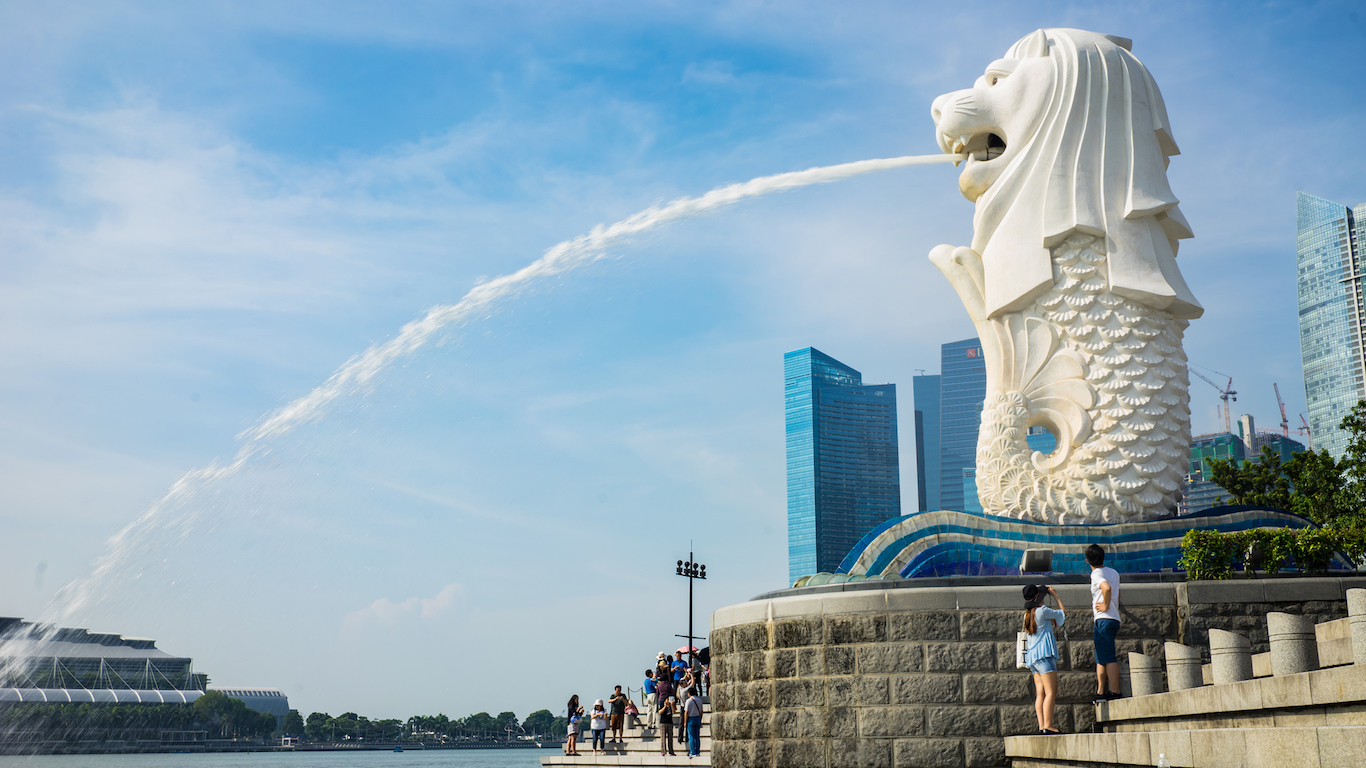

There are no rules governing the naming of places, countries or otherwise, and in many cases no accepted explanations of how they were named. Some names refer, or at least apparently refer, to geographical features: Honduras’s name is likely related to the Spanish word “hondura,” for depth, referring to its coastal waters; Andorra may or may not take its from a Spanish and Navarrese word for wasteland, “andurrial.” Flora or fauna might also be referenced, as with Brazil, from its indigenous pau bresil tree; Cameroon, whose name refers to the shrimp that were abundant in its waters (“camarões” means shrimp in Portuguese); or Italy, whose name possibly derives from “vitulus,” Latin for bull-calf (the bull was a local tribal symbol).
Other countries take their names from individuals, as with Bolivia (after the South American revolutionary leader Simón Bolivar) or Mauritius (for the Dutch ruler Maurice, Prince of Orange), or from indigenous peoples (Russia, after the Ros or Rus; France after the Franks). At least one country name — Greenland — might even be the result of an early public relations campaign.
Click here to learn how 50 countries got their names.
In researching derivations, we discovered countless examples of folk etymology — popular but unscientific, and almost certainly incorrect, attempts to explain the origins of words. Aruba, for example, has been said to take its name from a Spanish phrase, “oro huba,” supposedly meaning “there is gold” — but “huba” isn’t a Spanish word, and the actual translation would be “hay oro.” The Moldova River, for which the country of Moldova is named, is sometimes said to be called that in honor of a hunting dog named Molda that drowned in its waters. For serious etymologists, that dog won’t hunt.
Learning the origins of country names can be fun and surprising. It can also often tell us something about the history and values of other parts of our world.
To research the origins of the names of 50 of the world’s countries, 24/7 Wall St began with the Encyclopedia Britannica’s list of about 200 nations. We eliminated those whose names have obvious origins, such as the United Arab Emirates and the Central African Republic, and those with unknown derivations (the origin of Palau’s name remains a mystery), as well as countries whose names were explained solely by obviously unscientific etymologies. Our sources included the Online Etymology Dictionary, the Oxford Concise Dictionary of World Place Names, the Oxford English Dictionary, the CIA’s World Factbook, the Encyclopedia Britannica, online dictionaries for numerous languages, and the official government websites of various countries.
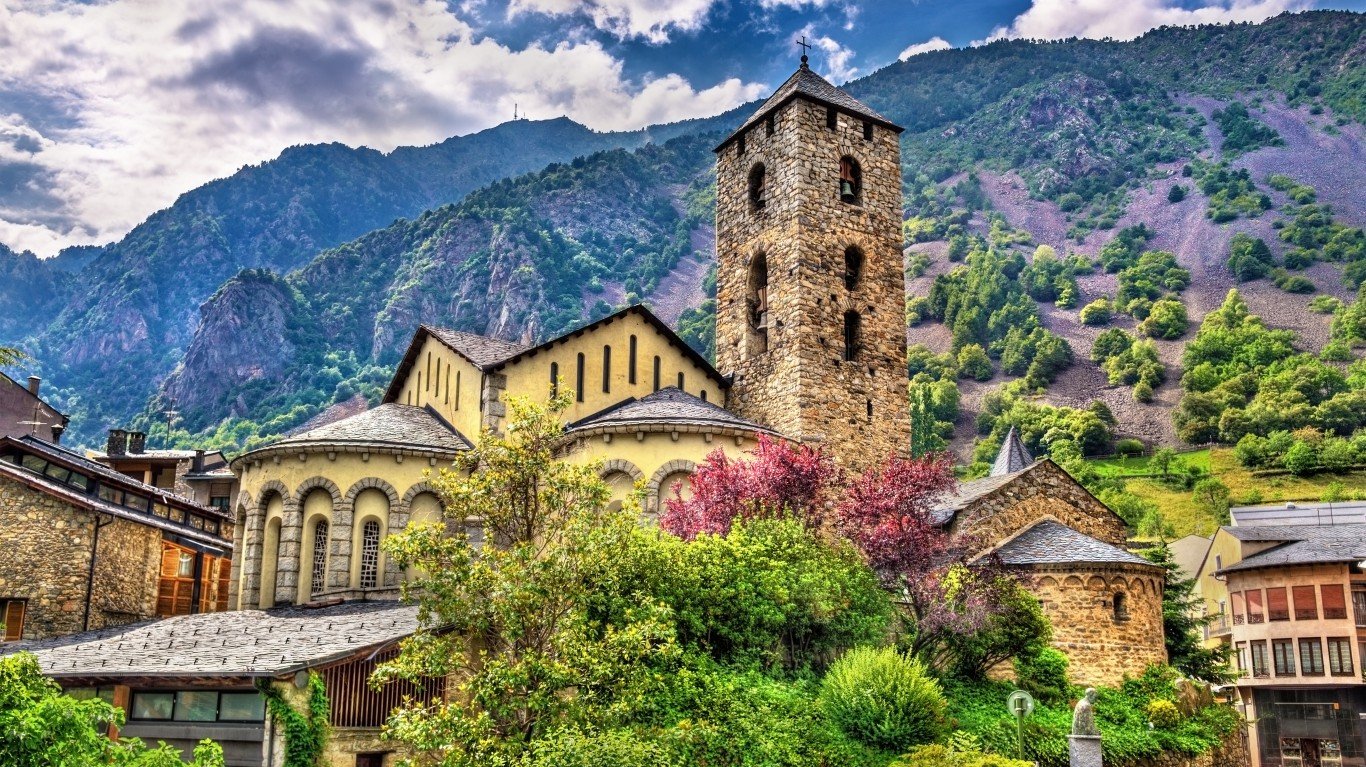
1. Andorra
Nobody knows for certain how this principality high in the Pyrenees Mountains, jointly administered by representatives of France and Spain, got its name. One theory links it to the Spanish (some sources say Navarrese) word “andurrial,” meaning a quagmire or a piece of wasteland. Another relates it to an Arabic term for forest. A more fanciful etymology suggests that the Emperor Charlemagne gave it its name in reference to Endor, a biblical village in the Holy Land.
[in-text-ad]
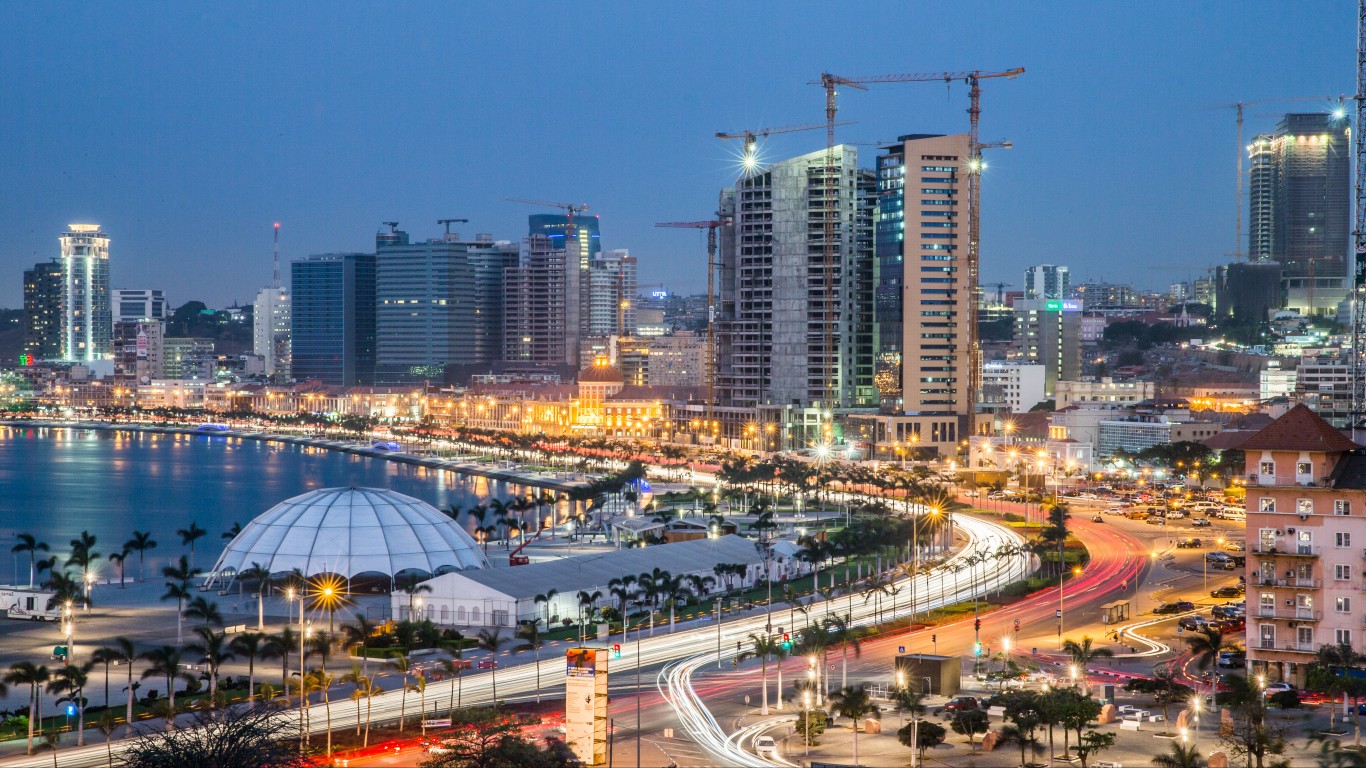
2. Angola
Angola, a longtime Portuguese colony in southwestern Africa which gained independence in 1975, takes its name from the title “ngola,” held by rulers of the medieval Ndongo Kingdom in what is now the northern part of the country.
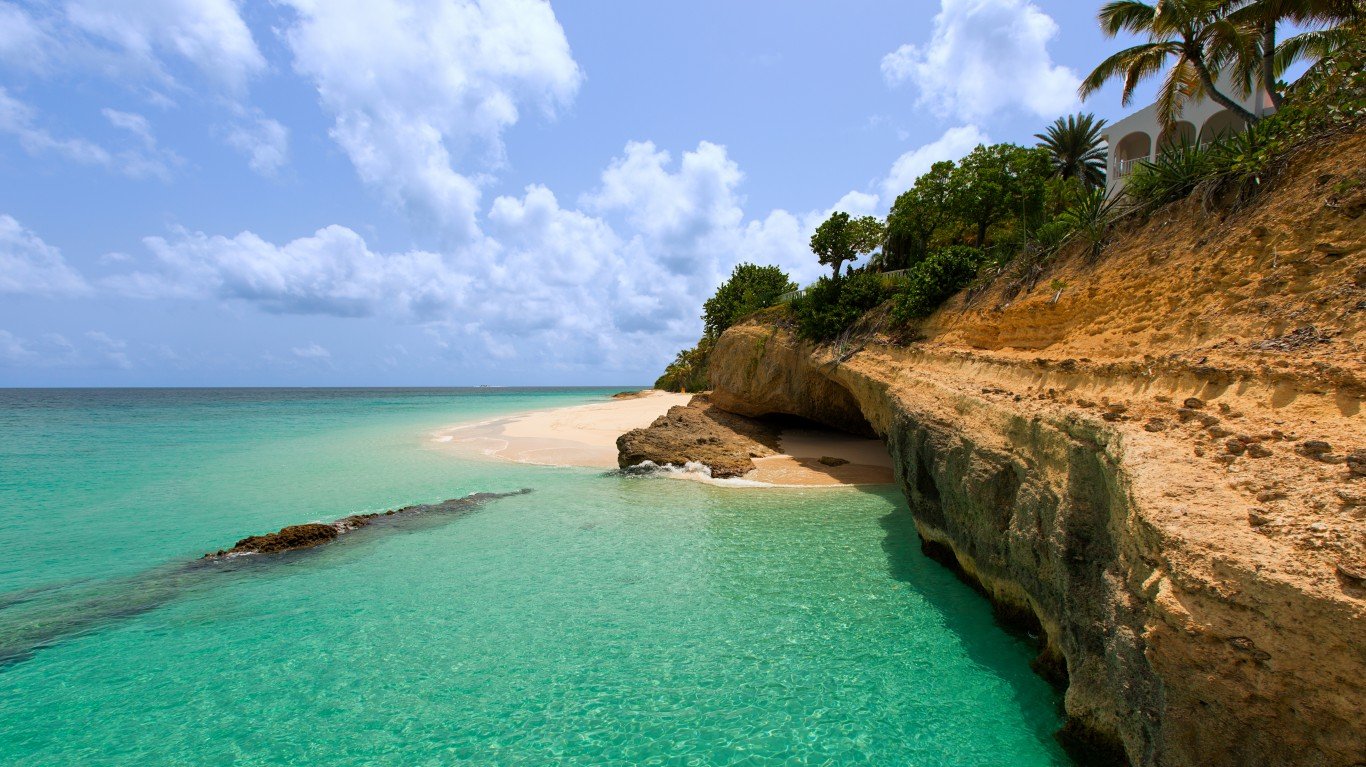
3. Anguilla
This Caribbean island is long and thin, and its shape most likely prompted somebody — Christopher Columbus, according to some theories, but more probably French explorers — to name it for the eel, “anguilla” in Italian, “anguila” in Spanish, and “anguille” in French.
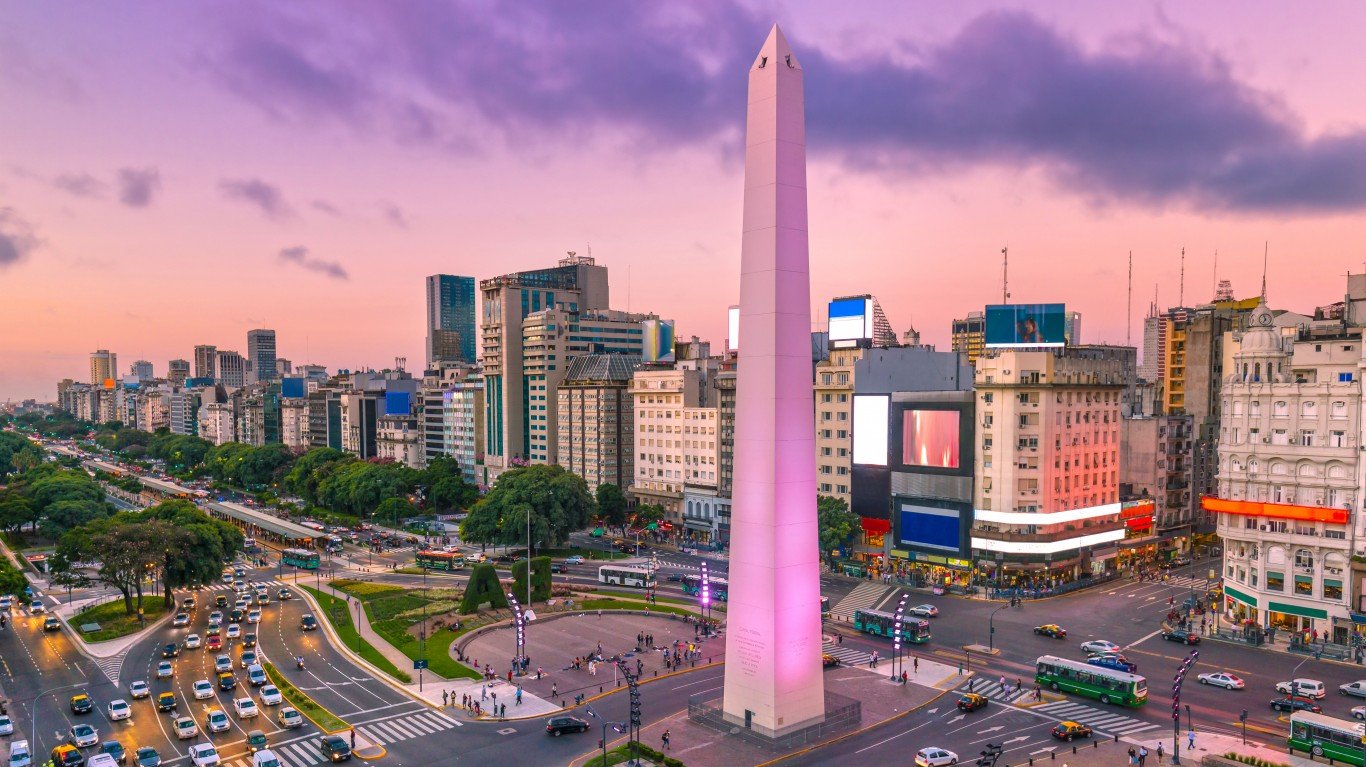
4. Argentina
Spanish explorers in the 16th century called the estuary of the Paraná and Uruguay rivers, near present-day Buenos Aires, the Río de la Plata, or River of Silver — perhaps because the region’s native inhabitants wore silver ornaments, spurring rumors that silver mines existed nearby. The area around the estuary came to be known as Tierra Argentina, or Silvery Land, and eventually the first part of the name was dropped.
[in-text-ad-2]
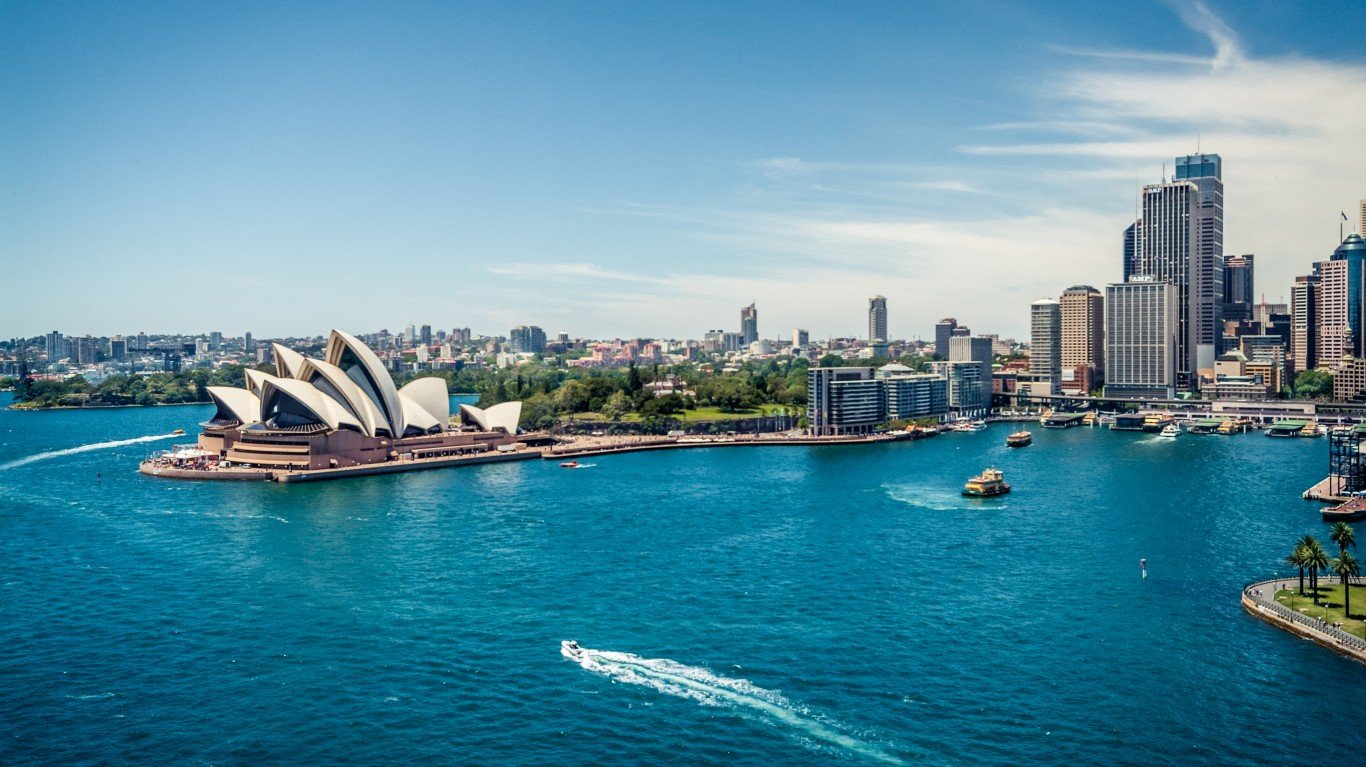
5. Australia
Around 150 A.D., Greek astronomer and geographer Claudius Ptolemy drew a map on which he imagined a large land mass in the Southern Hemisphere, which he labeled “Terra Australis Incognita,” Latin for “unknown southern land.” Dutch explorers originally called the country’s western coast New Holland. The English later claimed the country’s eastern coast, calling it New South Wales. The English scientist Matthew Flinders who had circumnavigated the land mass in 1802 and 1803, was the first to hark back to Ptolemy and call the whole continent “Australia.” In 1817, the governor of New South Wales, Lachlan Macquarie, began using the name in official correspondence, and it stuck.
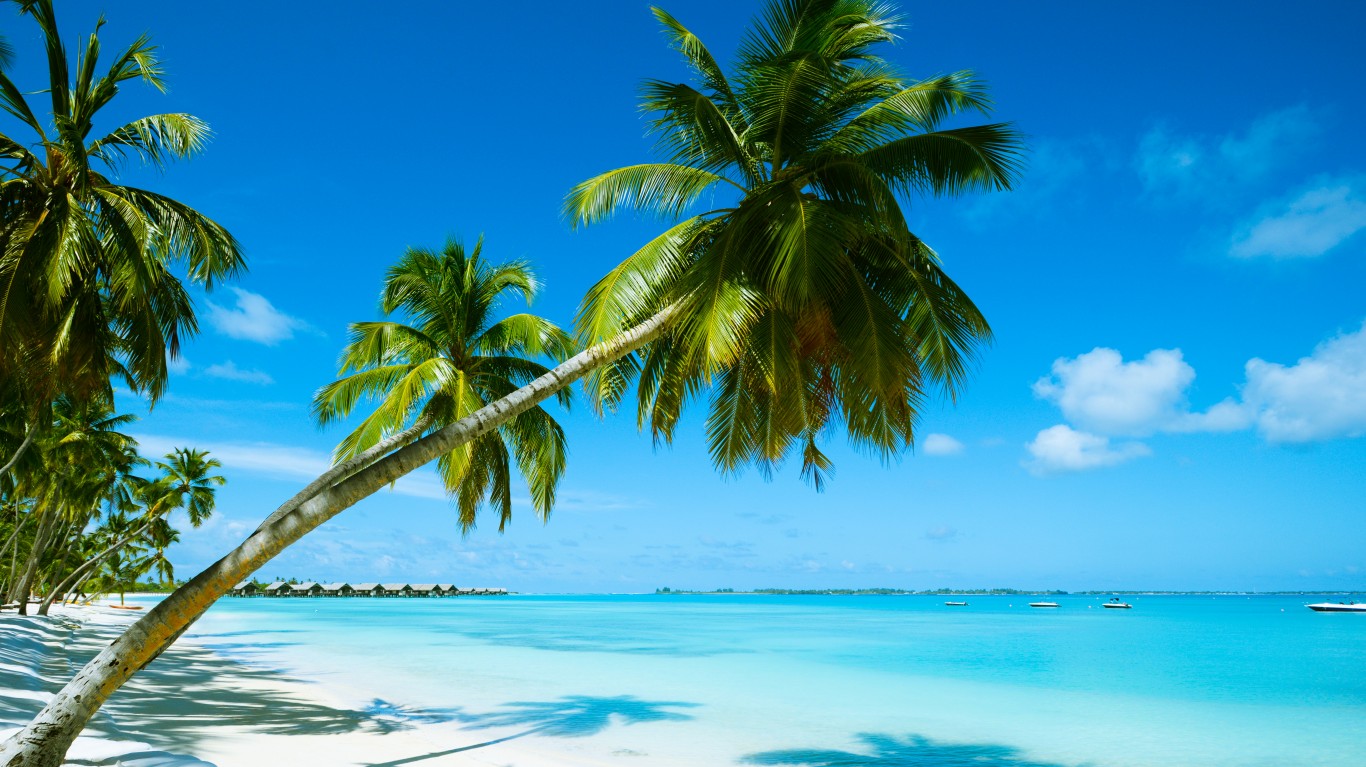
6. The Bahamas
It is commonly believed that these Atlantic islands just outside the Caribbean are named for the Spanish “baja mar,” or shallow sea. The name might also derive from an unknown term in the pre-Hispanic language of the Lucayans, the original inhabitants of the archipelago.
[in-text-ad]

7. Bangladesh
In 1947, when British rule in India ended, the country was divided along religious lines into Hindu-majority India and Muslim-majority Pakistan. The latter was split into two halves, 1,100 miles apart — West Pakistan and East Bengal, later renamed East Pakistan. East Pakistan became independent in 1971, and renamed itself Bangladesh from the Bengali words “Bangla,” for Bengali (the local language and culture), and “desh,” for country.
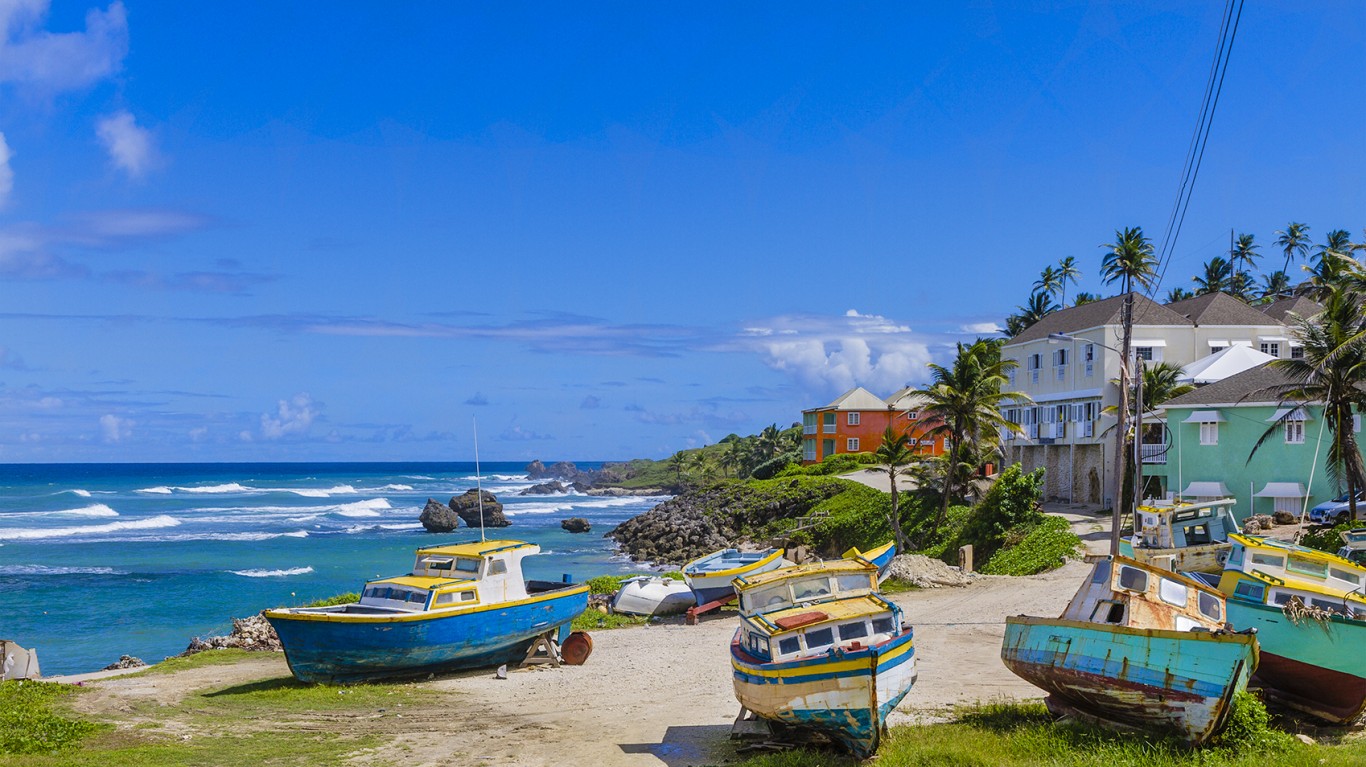
8. Barbados
This Caribbean island takes its name from the Portuguese phrase “os barbados,” the bearded ones, most likely a reference to the bearded fig tree (Ficus citrifolia) that grows all over the island and has long hanging roots thought to resemble facial hair. (The tree is depicted on the Barbados coat of arms.)
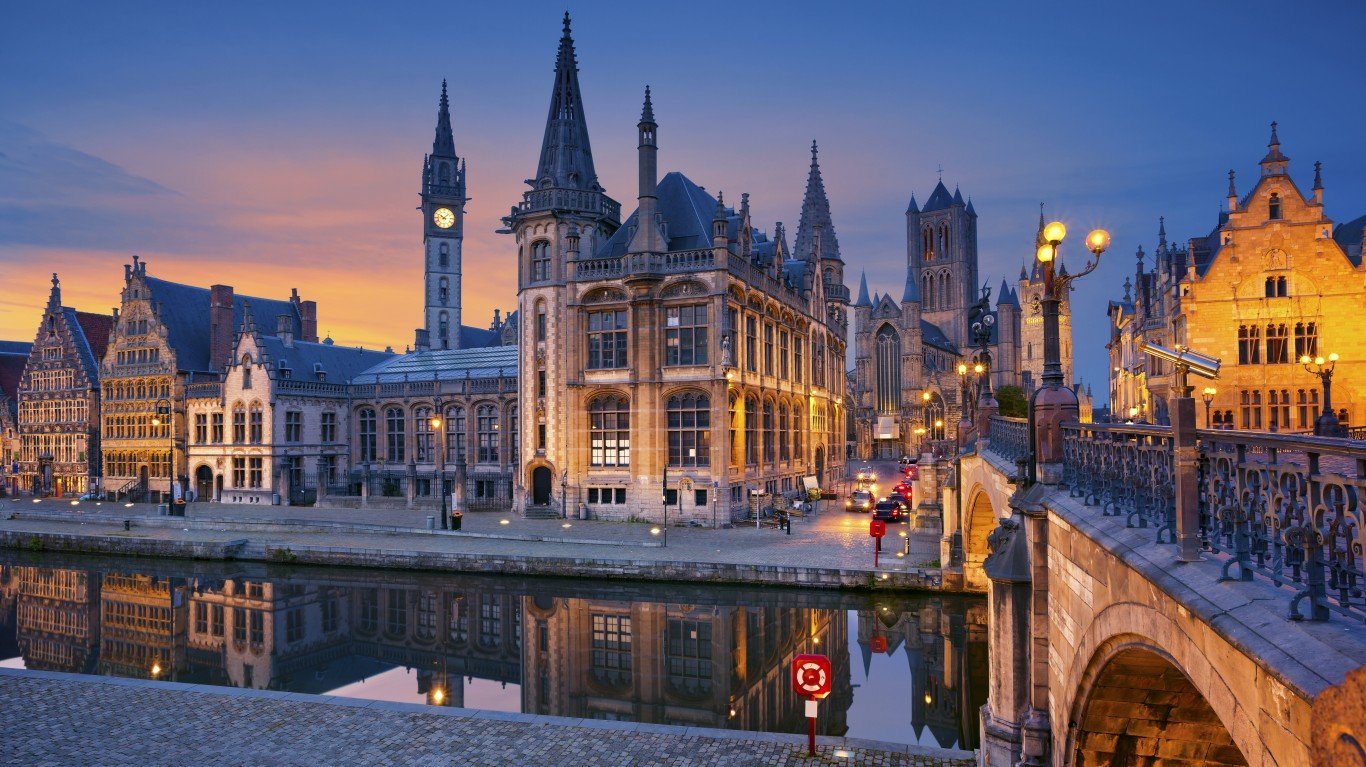
9. Belgium
This country was named for the Belgae, a Celtic or Celto-Germanic tribe occupying the region of Northern Gaul. When Julius Caesar famously declared that all Gaul was divided into three parts, he identified one part as being occupied by the Belgae, whom he called “the bravest” of the local tribes.
[in-text-ad-2]

10. Benin
Formerly called Dahomey, this West African nation took its modern name from the Bight of Benin, a bay off the coasts of Benin, Nigeria, Togo, and Ghana, which in turn was named after the historic kingdom of Benin, now within Nigeria. The name might refer to the Bini people, who were among the region’s original inhabitants, or it could stem from the Yoruba “ile-ibinu,” or land of argument, possibly a reference to local warfare.
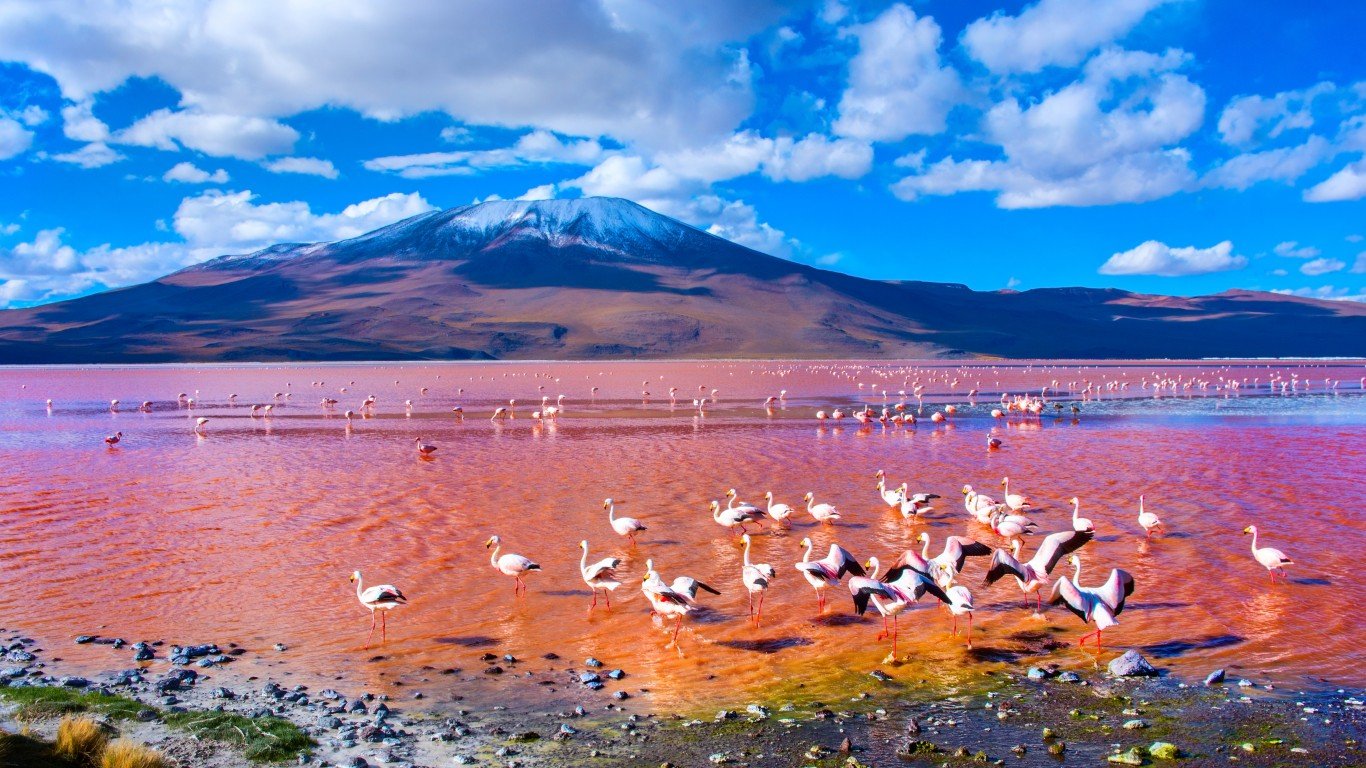
11. Bolivia
The Venezuela-born soldier and statesman Simón Bolivar, who led revolutions against the Spanish in Central and South America in the early 1800s, is the source of this landlocked nation’s name. Upon the country’s founding in 1825, it was dubbed República Bolivar as a tribute to him, a name later shortened to Bolivia.
[in-text-ad]
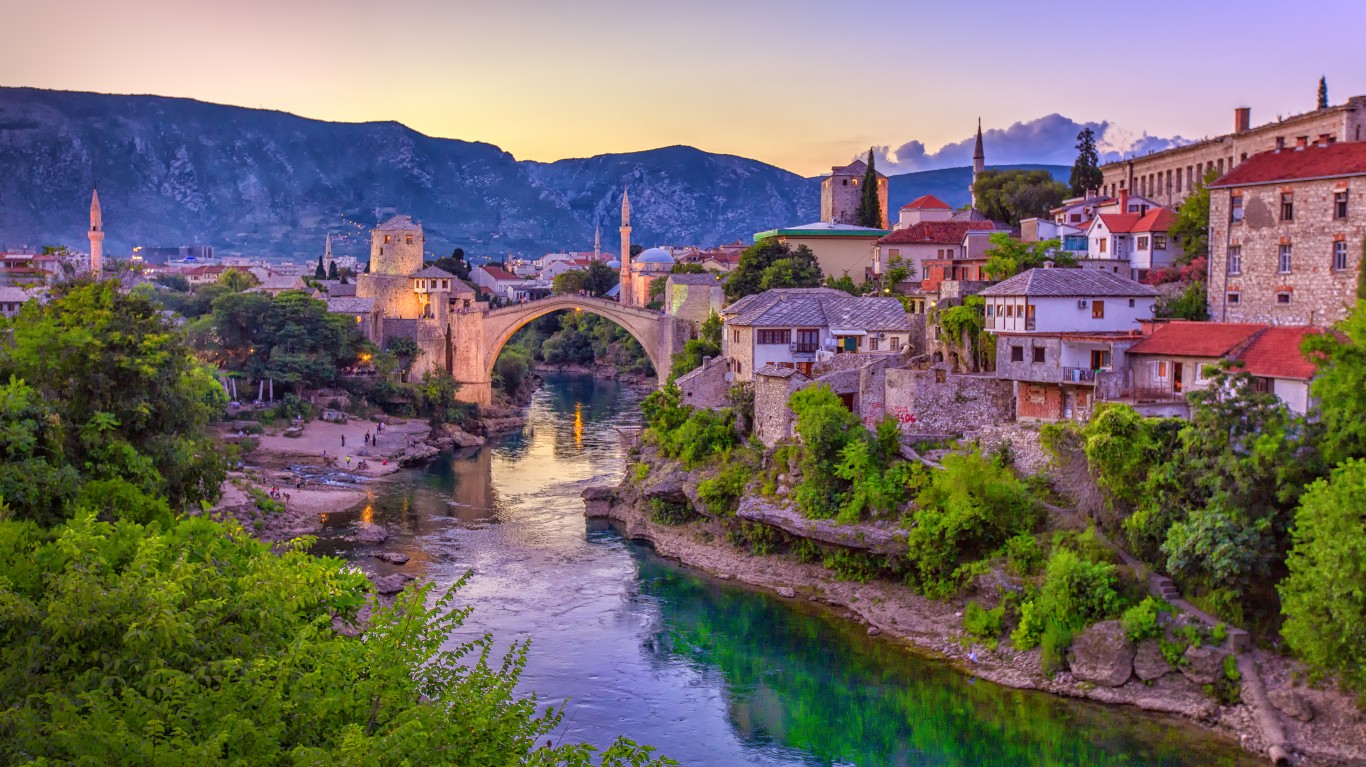
12. Bosnia and Herzegovina
This Balkan country takes the first half of its moniker from its Bosna River, whose name in turn might come from the Indo-European root “bhog,” meaning current (as in a river), by way of the Illyrian word “bas,” flowing water. “Hercegovina” derives from the Serbian and Croatian word “herceg,” or duke, the title assumed by a local ruler in 1448.
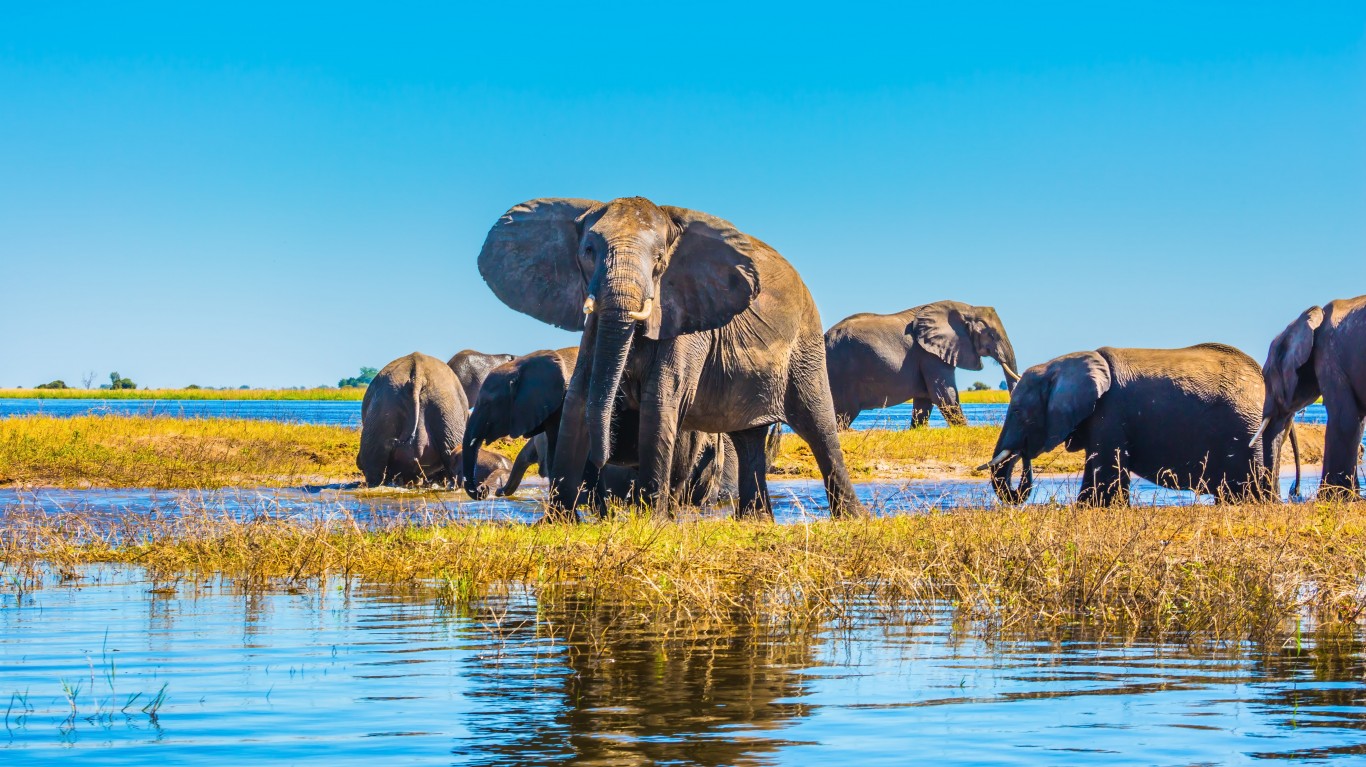
13. Botswana
This southern African nation is named for its indigenous Tswana or baTswana people, still the country’s dominant tribe.
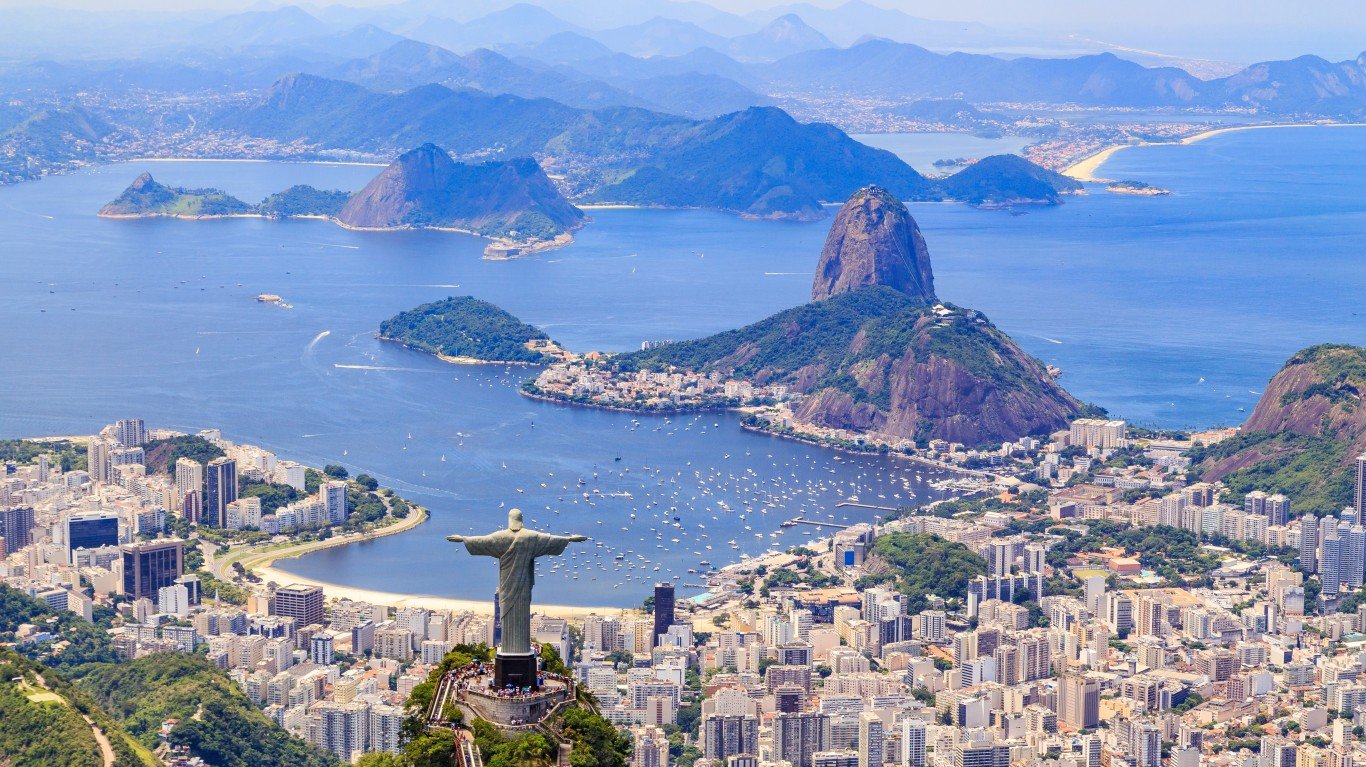
14. Brazil
Portuguese-speaking Brazil takes its name from the pau bresil tree (Caesalpinia echinata), once plentiful in its coastal forests. “Pau” is a colloquial word for “tree,” and “brasil” comes from the Portuguese “brasa,” or “ember” — a reference to the pau bresil’s red sap, once used for dying cloth. Today the tree’s wood is prized for use in cello and violin bows.
[in-text-ad-2]
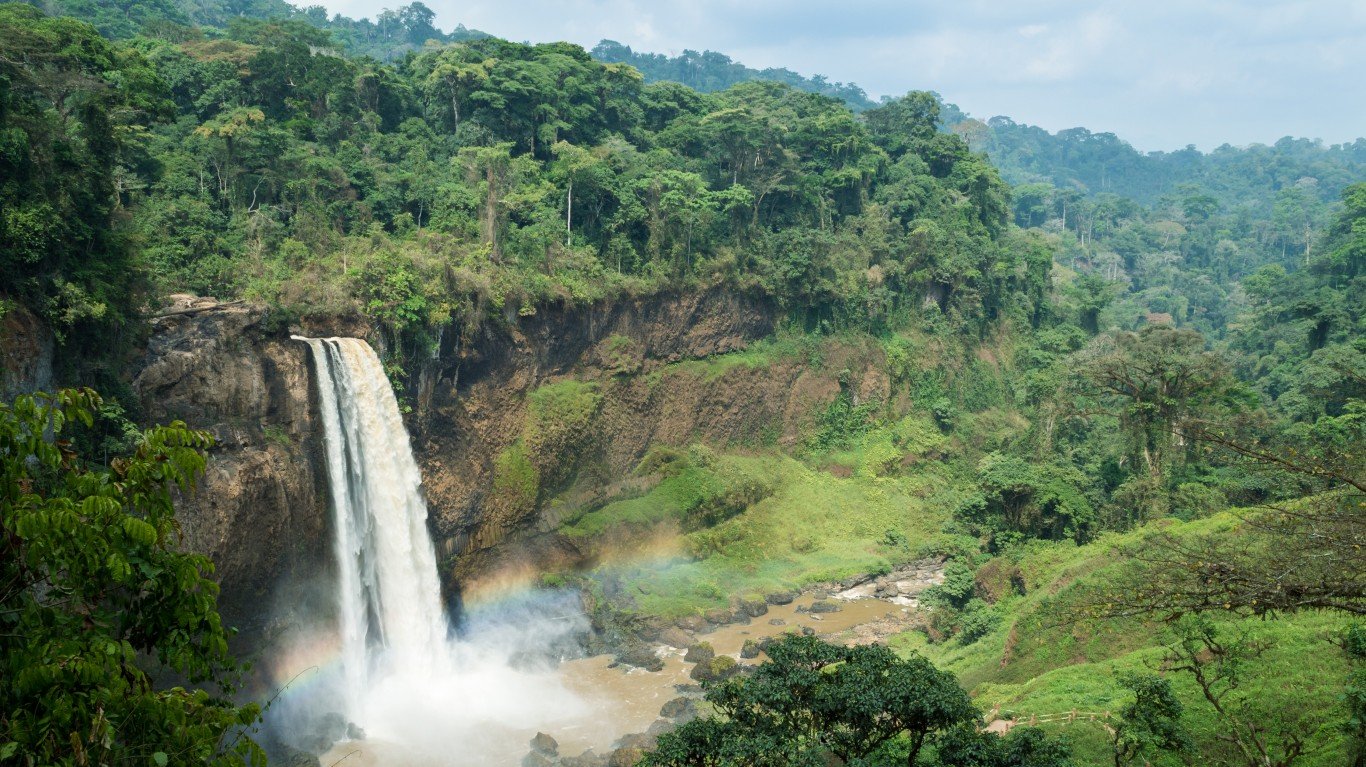
15. Cameroon
Portuguese explorers in the 16th century called this West African region’s principle river Rio dos Camarões, or river of shrimp, for the abundance of those crustaceans found there. That name evolved into Cameroon. (The river is now called the Wouri.)

16. Canada
“Canada” is the name originally given to a French colony on the St. Lawrence River, first used in the mid-16th century. It is believed to derive from a St. Lawrence Iroquoian word for town or village, now rendered as “kaná:ta?”.
[in-text-ad]
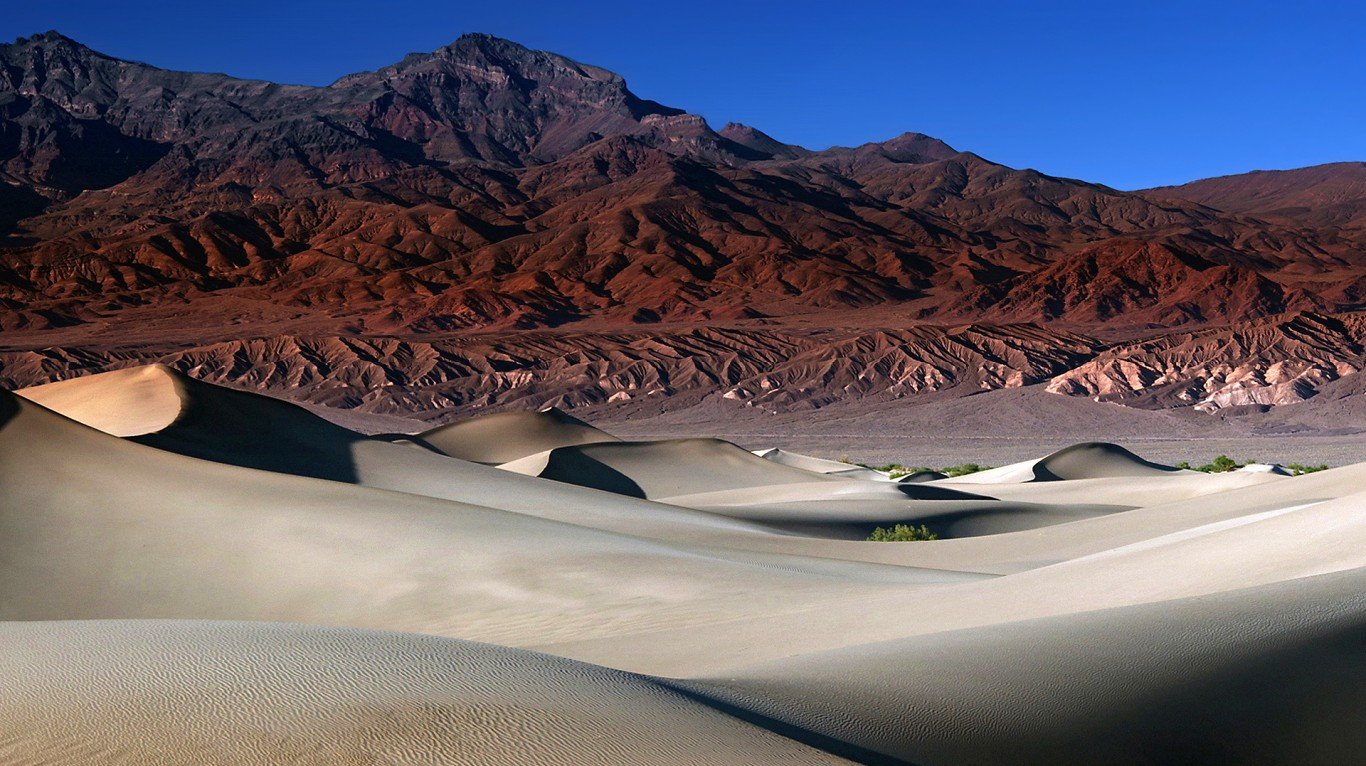
17. Chad
“Tsade,” said to mean a large body of water in several local languages, gave its name to the 6,875-square-mile Lake Chad, for which this north-central African state was named.
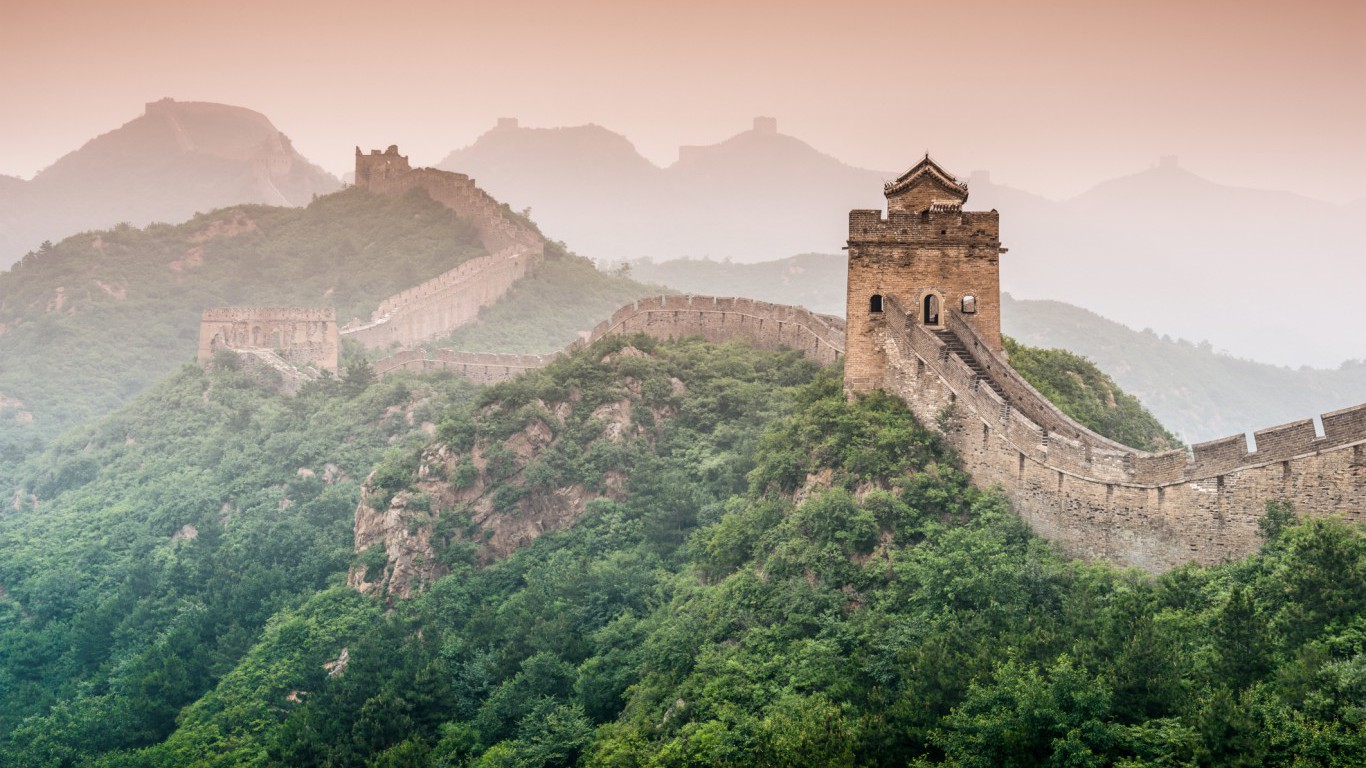
18. China
China borrows its name from the Qin (or Quin or Chin) rulers of the third century B.C., who established a short-lived empire that subsumed six Zhou Dynasty states, becoming China’s first imperial dynasty. Among other accomplishments, the Qin connected existing fortifications into the original Great Wall and commissioned the famous terracotta army.
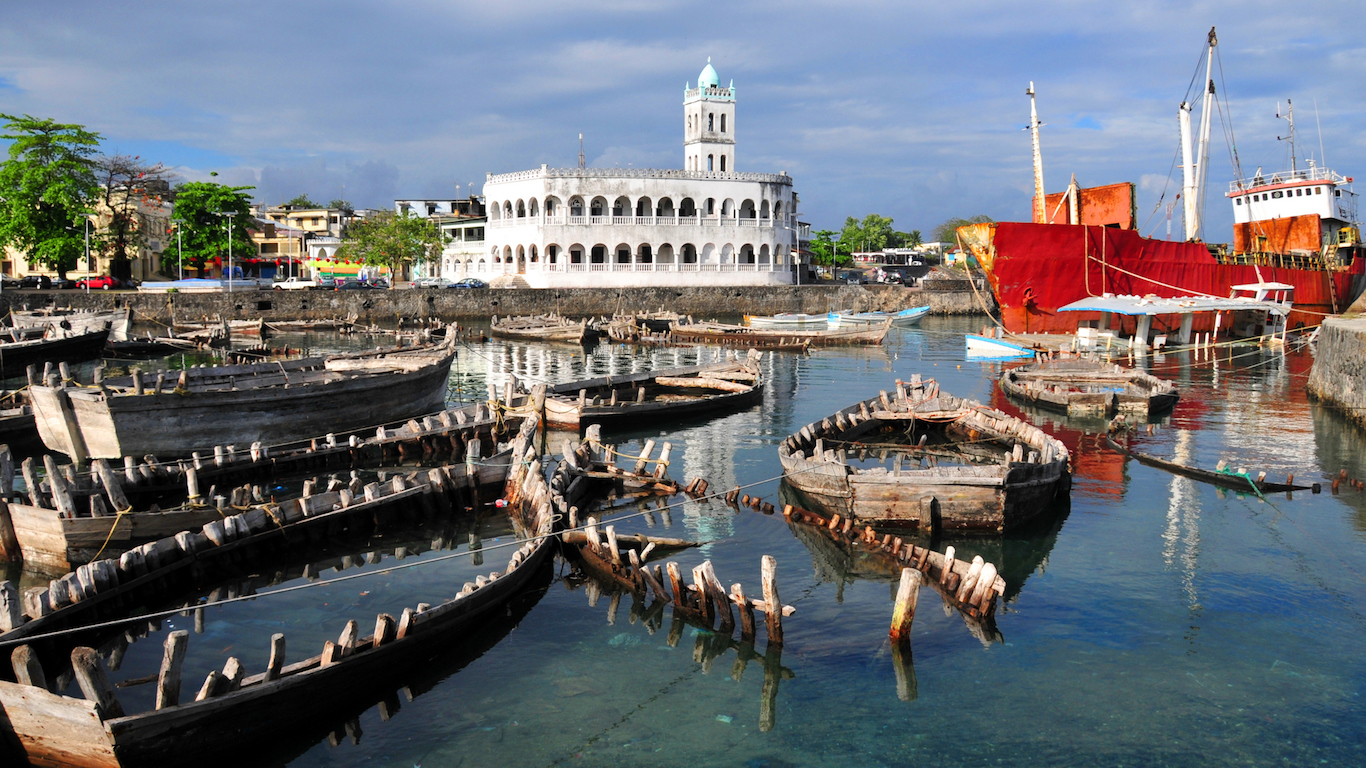
19. Comoros
The African island state of Comoros, in the Indian Ocean, might take its name from the Arabic “juzur al-qamar,” islands of the moon, probably first applied to the archipelago by Arab sailors.
[in-text-ad-2]
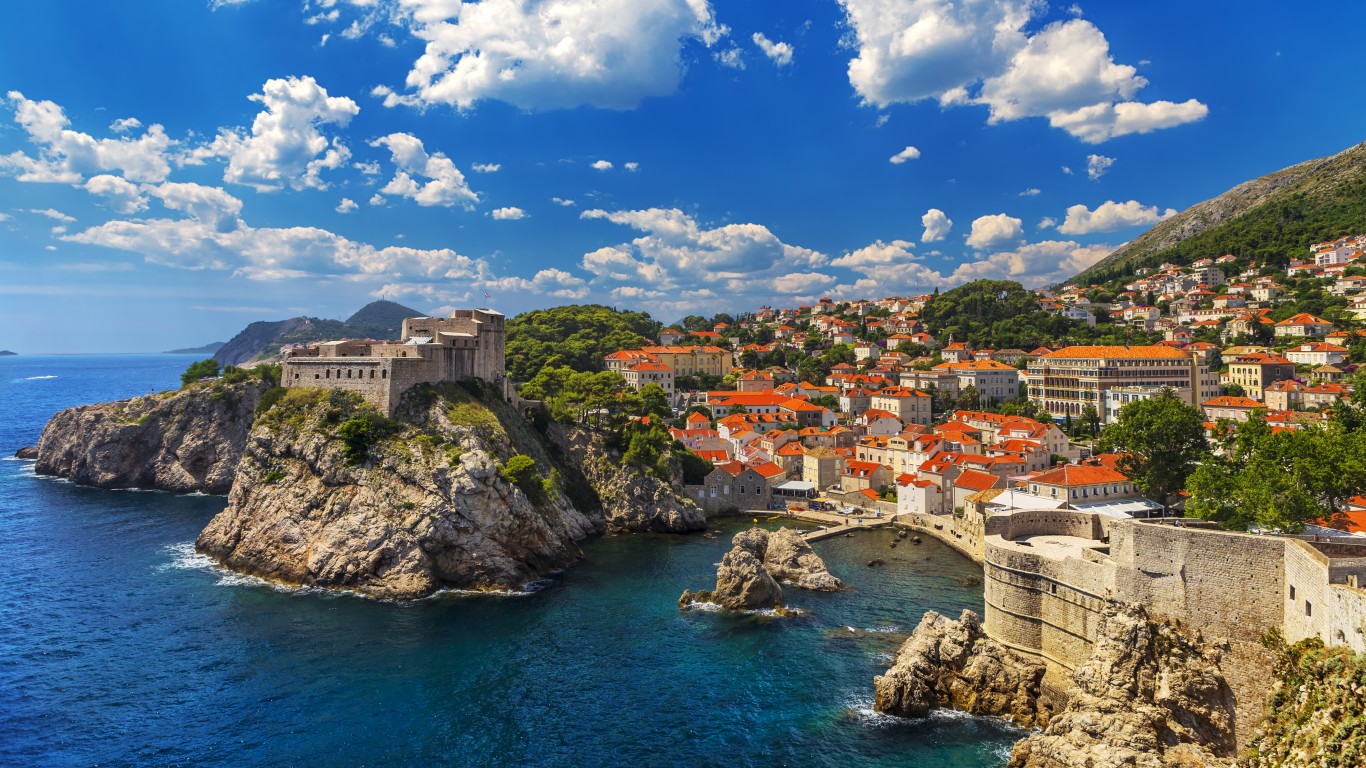
20. Croatia
This Balkan nation is named after its inhabitants, the Croats, whose name in turn may come from a Persian name, Choroatos — rendered as “Hrvat” in the Croatian language (the Croats call themselves Hrvati). That name might come from a tribal word for “friend.” Another theory links this country’s name to the Croatian word “hrbat,” meaning ridge, presumably a reference to its coastal mountains.
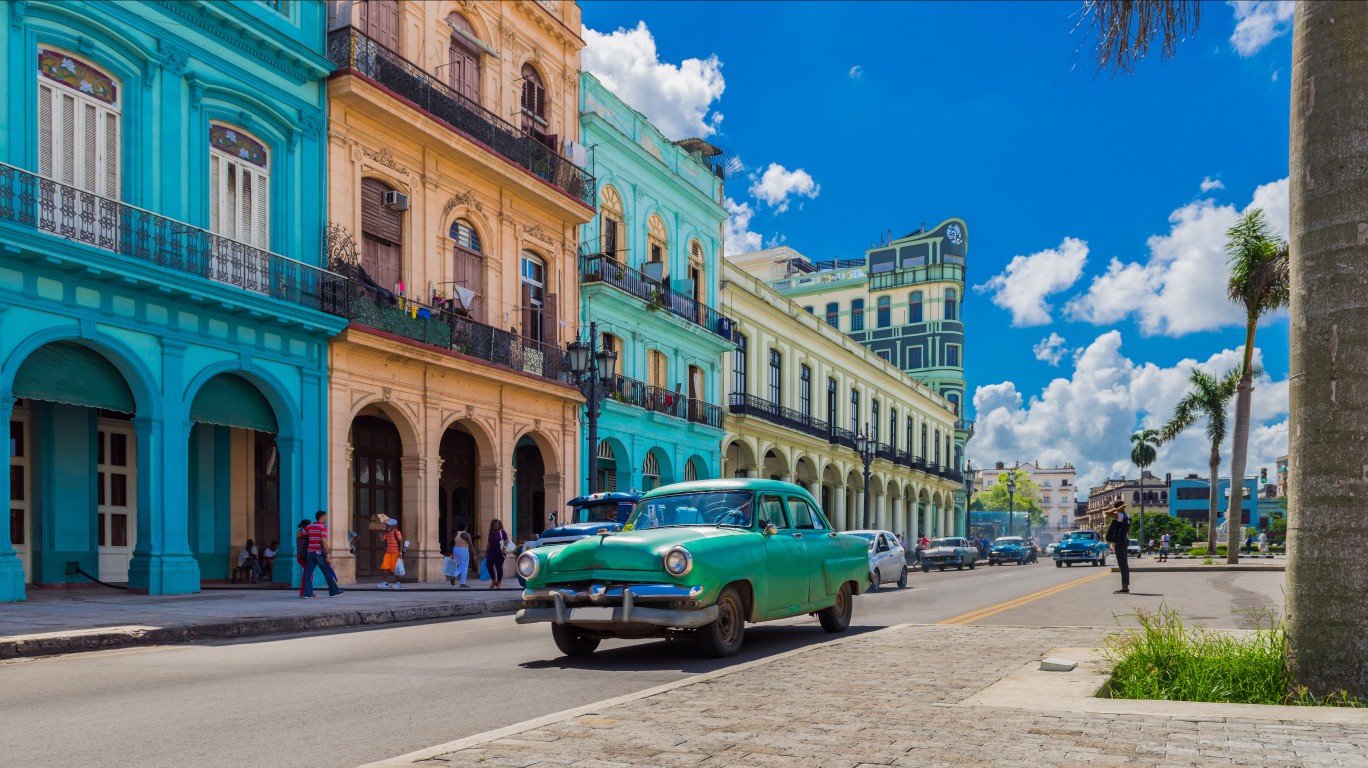
21. Cuba
While the etymology is uncertain, Cuba might take its name from an indigenous Taino word, “cubanacan,” meaning a central place — reflecting the island’s position in roughly the center of the Caribbean.
[in-text-ad]
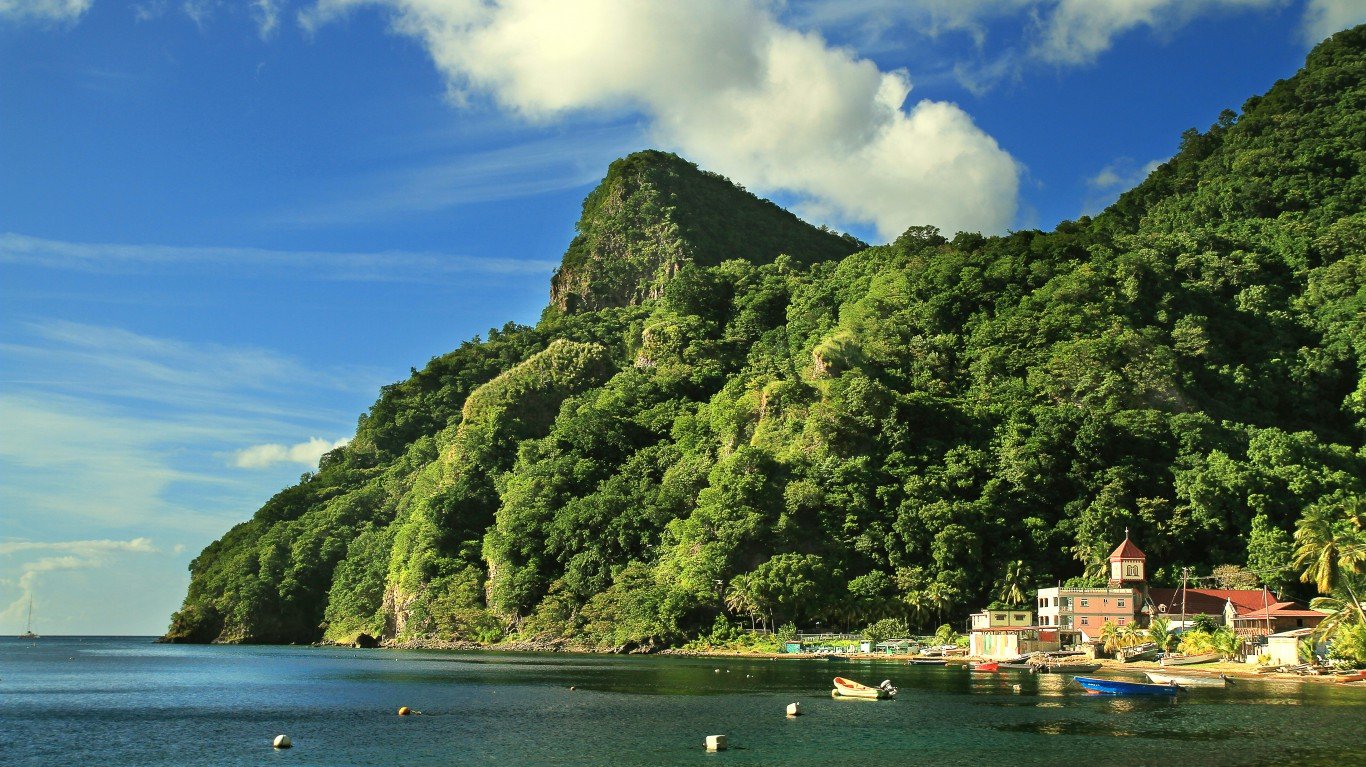
22. Dominica
This Caribbean island republic was named by Christopher Columbus when he first came upon it on a Sunday in 1493. “Dominica” means Sunday in Latin, one of the language Columbus knew.
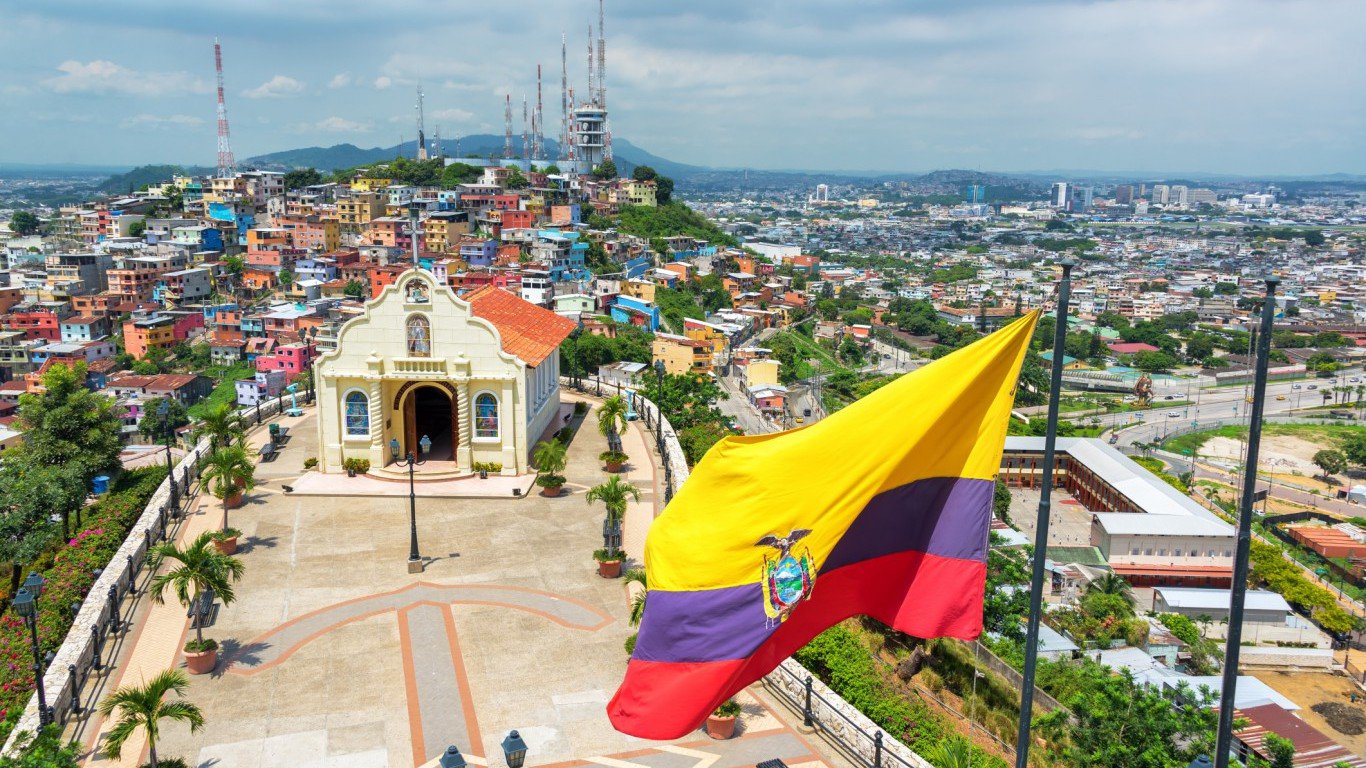
23. Ecuador
Here’s one etymology that’s simple and undisputed: “Ecuador” is Spanish for “equator.” The equator runs through the country’s northern portion.
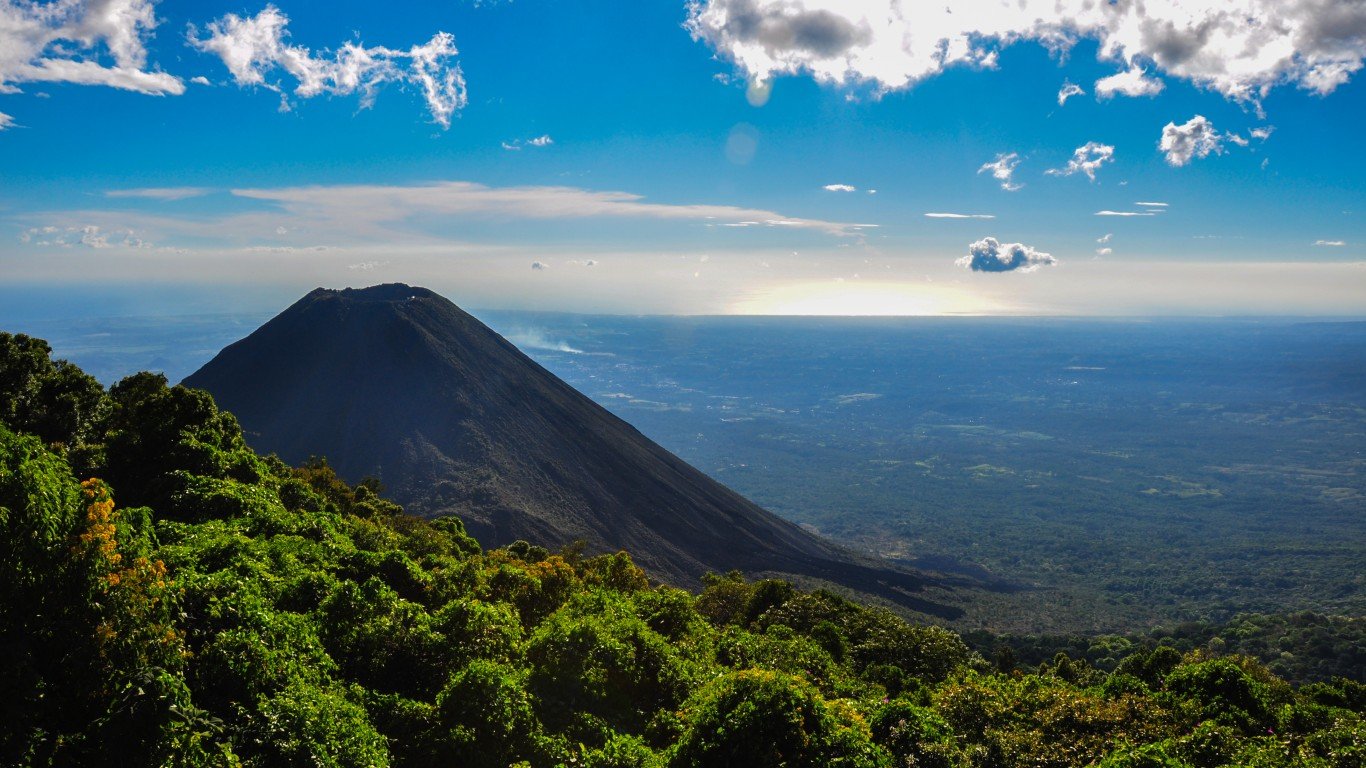
24. El Salvador
The Spanish Conquistadors who conquered the indigenous Pipil Indians living in this part of Central America called the region the Provincial de Nuestro Señor Jesucristo, el Salvador del Mundo, the Province of Our Lord Jesus Christ, Savior of the World. The name eventually got shortened to El Salvador.
[in-text-ad-2]
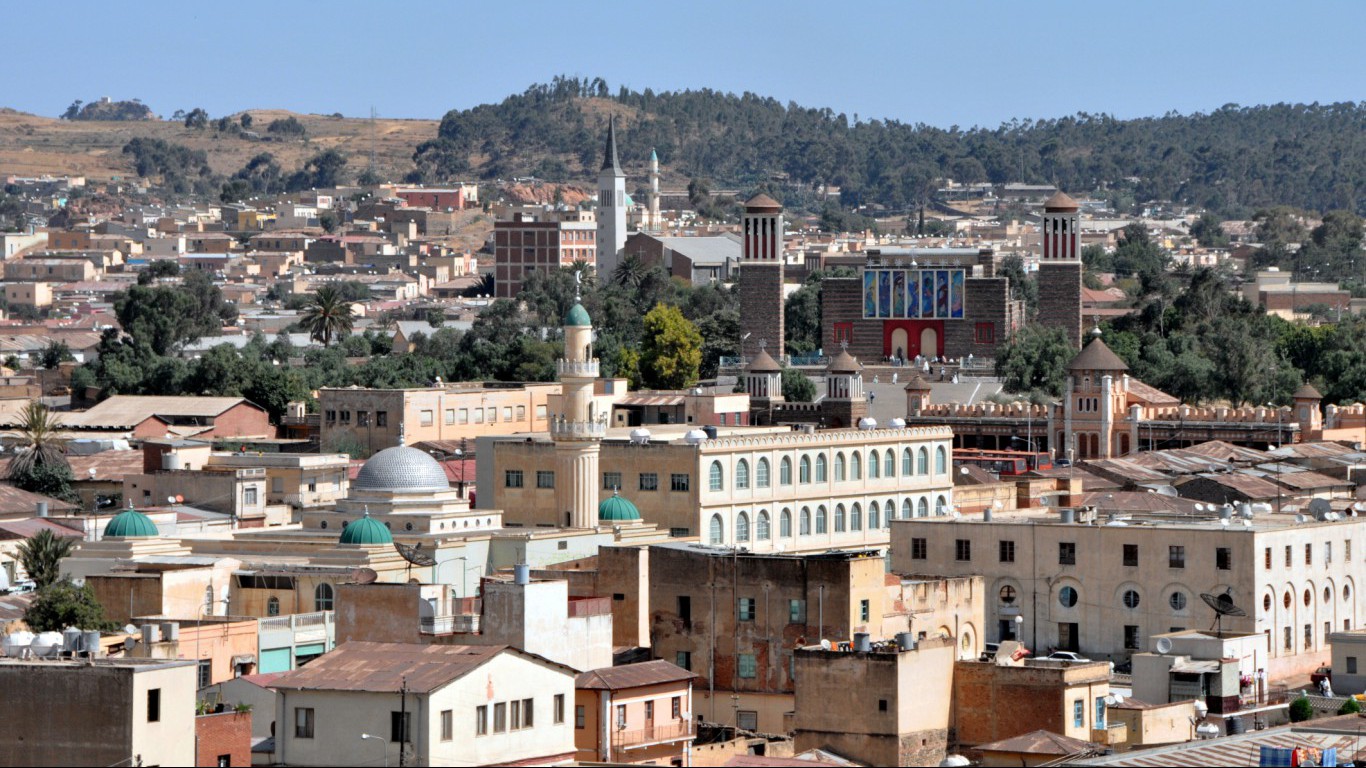
25. Eritrea
Eritrea, whose coastline borders the Red Sea, was named indirectly for that body of water. The ancient Greeks gave the sea its name, Erythre Thalassa, meaning “red sea.” The Romans borrowed the Greek term and called it Mare Erythreum. Their descendents, the Italians, who occupied the region in 1935, Italianized “Erythreum” to “Eritrea,” and applied it to the country.
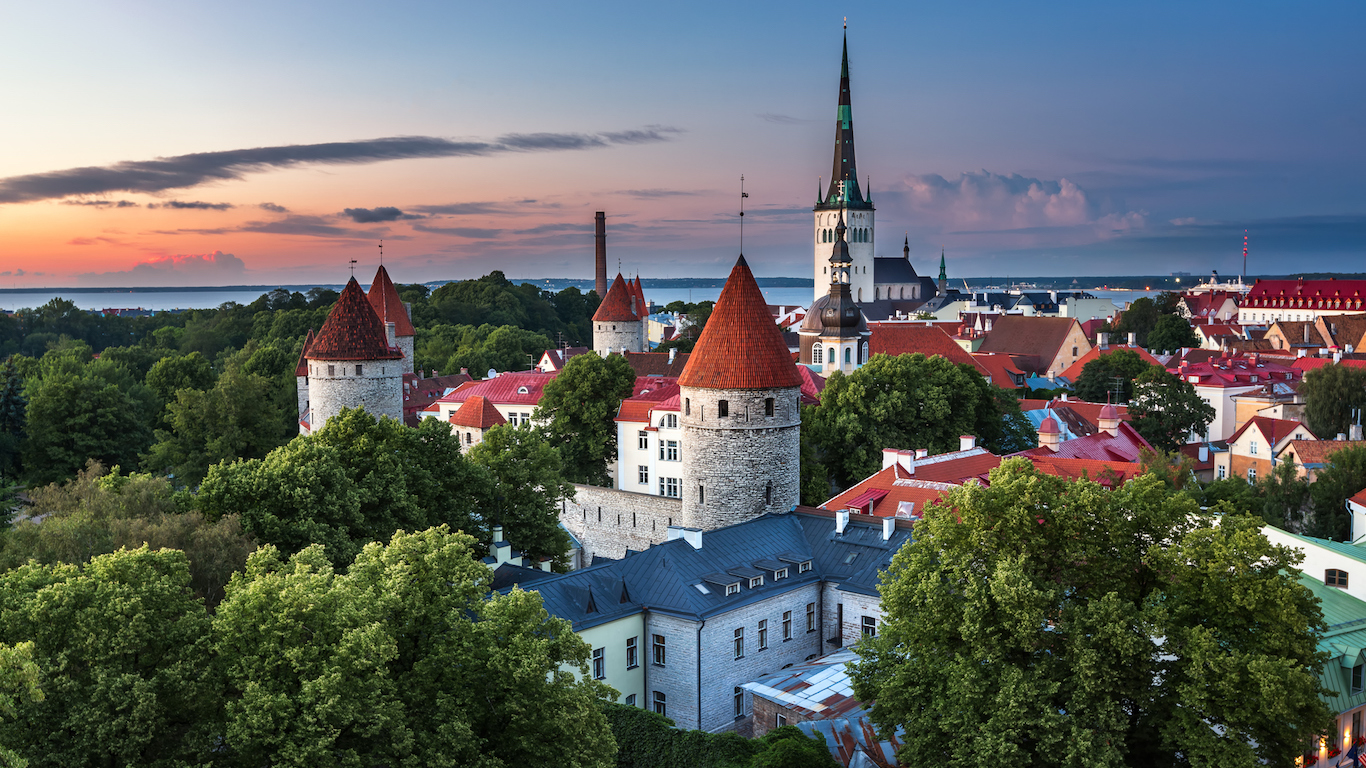
26. Estonia
This Baltic country was possibly named for the Aesti, an ancient people — first described by the Roman historian Tacitus, circa 98 A.D. — who lived on the eastern shores of the Baltic Sea. The origin of their name is unknown. Although it’s tempting to relate it to “øst,” the word for east in Norwegian and Danish, no apparent connection exists.
[in-text-ad]

27. France
France takes its name from the Franks, a coalition of Germanic tribes who conquered the region after the fall of the Roman Empire. The Franks in turn may have been named after their favored weapon, the javelin, called “franko” in Old High German.

28. Greenland
How did this ice-covered island end up getting called Greenland? It apparently got the name Grønland (Greenland in Norwegian) from the Norwegian adventurer Erik Thorvaldsson, better known as Erik the Red, in 985 A.D. The popular explanation is that he dubbed it that as a public relations measure, to encourage colonization. Ice core and mollusk shell data, however, indicate that between 800 and 1300 A.D., island temperatures were considerably warmer than they are today, so maybe he was simply reacting to a verdant landscape that has long since disappeared.
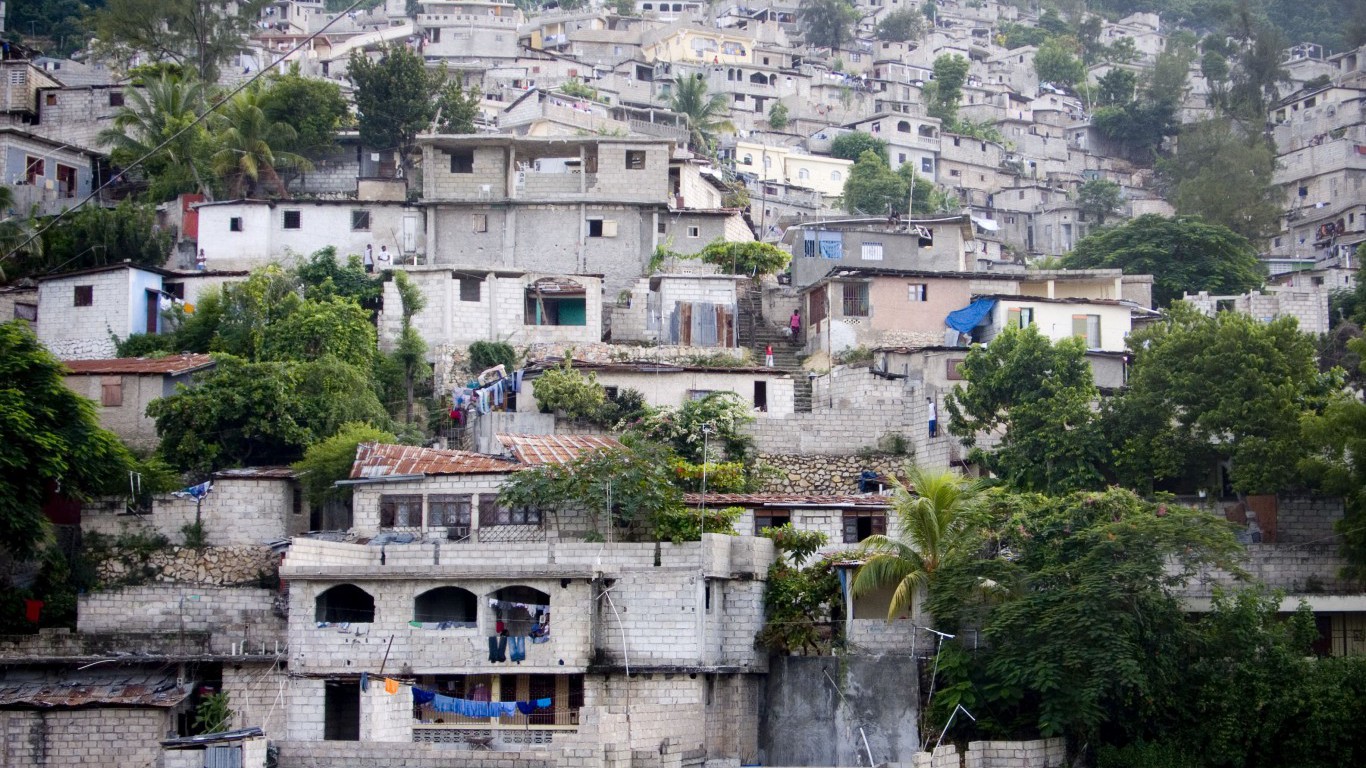
29. Haiti
The indigenous Taino, or Arawak, people called this island, which today includes both Haiti and the Dominican Republic, Ayti (or Ayiti), meaning land of mountains. (Haiti’s name today in Haitian Creole is Repiblik d Ayiti.) When this former French colony declared its independence in 1804, its first ruler, Jean-Jacques Dessalines, named it Haiti in recognition of its Arawak heritage.
[in-text-ad-2]
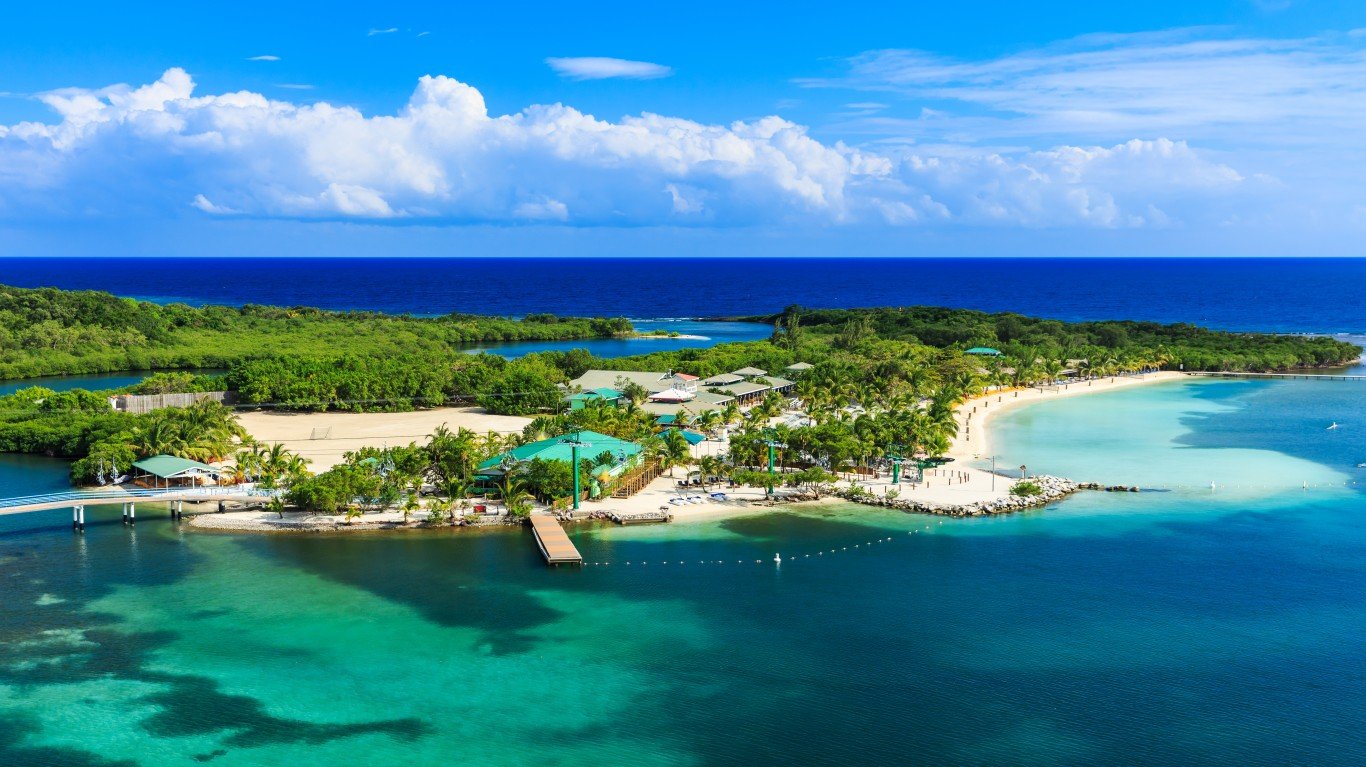
30. Honduras
This Central American country takes its name from the Spanish word “hondura,” meaning depth, for the deep anchorage in the Bay of Trujillo off the northern coast.
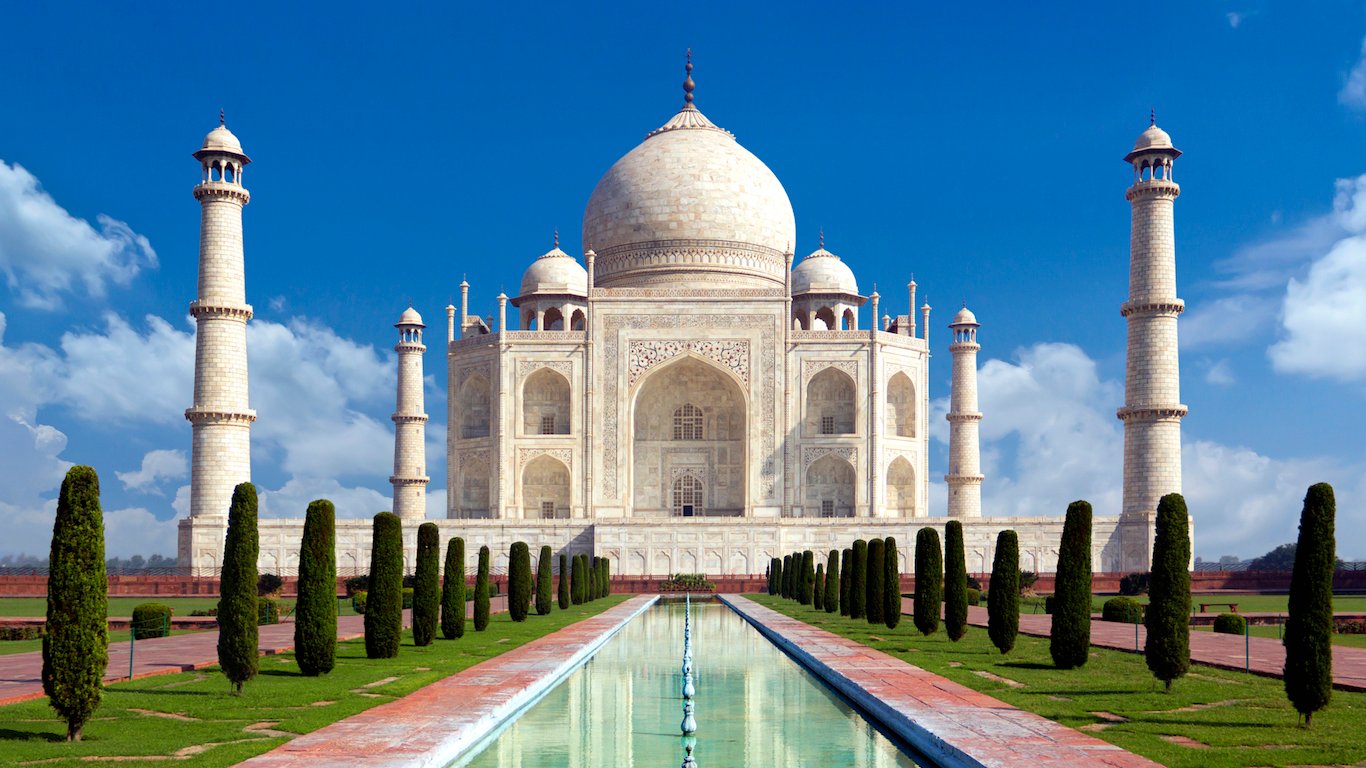
31. India
This south-Asian land is named for the Indus River, whose name in turn might come from a Sanskrit word for sea, “sindhu.” Sindhu is, in fact, an alternative name for the river.
[in-text-ad]
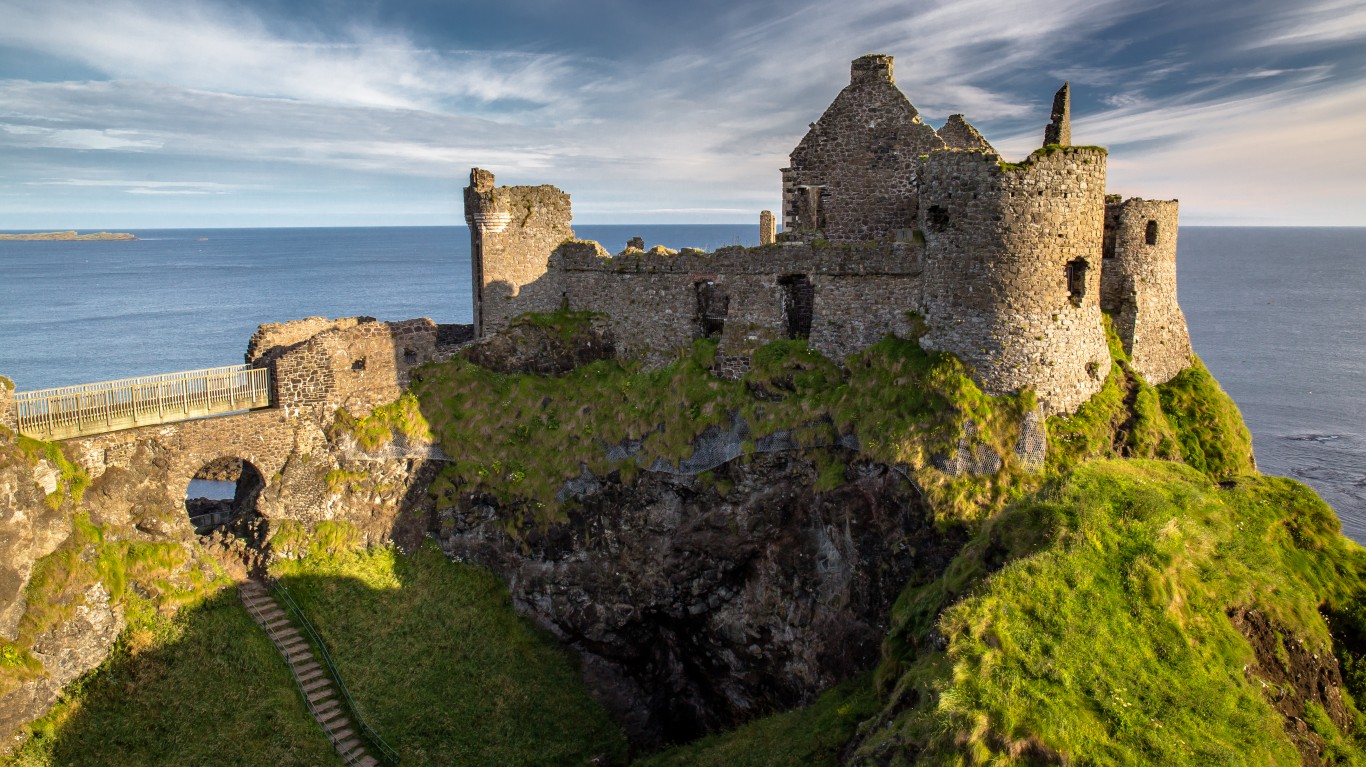
32. Ireland
Ireland is named for the mythical feminine personification of the island, Eriu — the Irish form of Erin. “Eriu” evolved into Eire and then to Ireland — Eriu’s land. (Both Erin and Eire are alternative names for Ireland.)
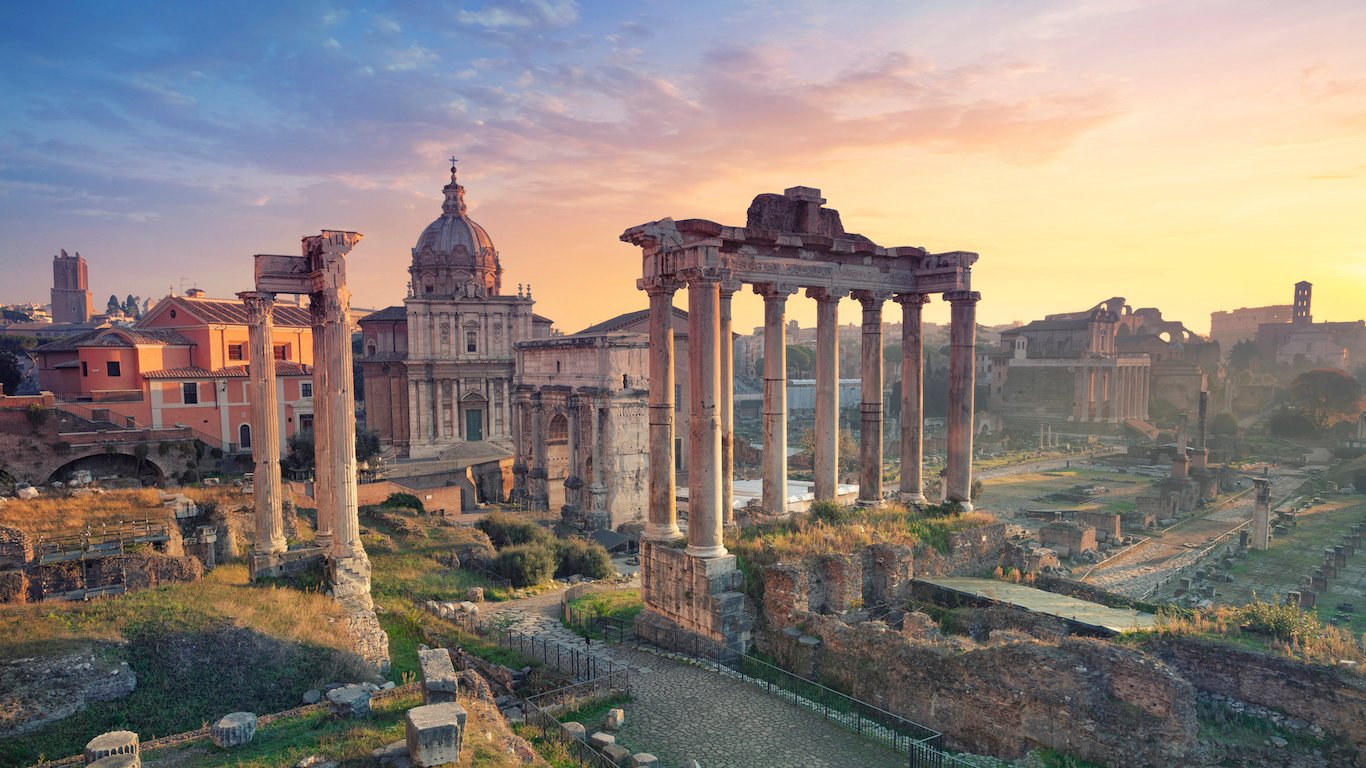
33. Italy
No consensus exists on how this quintessentially Mediterranean country got its name. It could come from a southern Italian tribe called the Vitali. Another possibility is the Latin word “vitulus,” for calf or bull-calf (the bull was a symbol of local tribes). One other theory is that the name honors Italus, a mythical ancient king, said to have been the father of Remus, a co-founder of Rome.
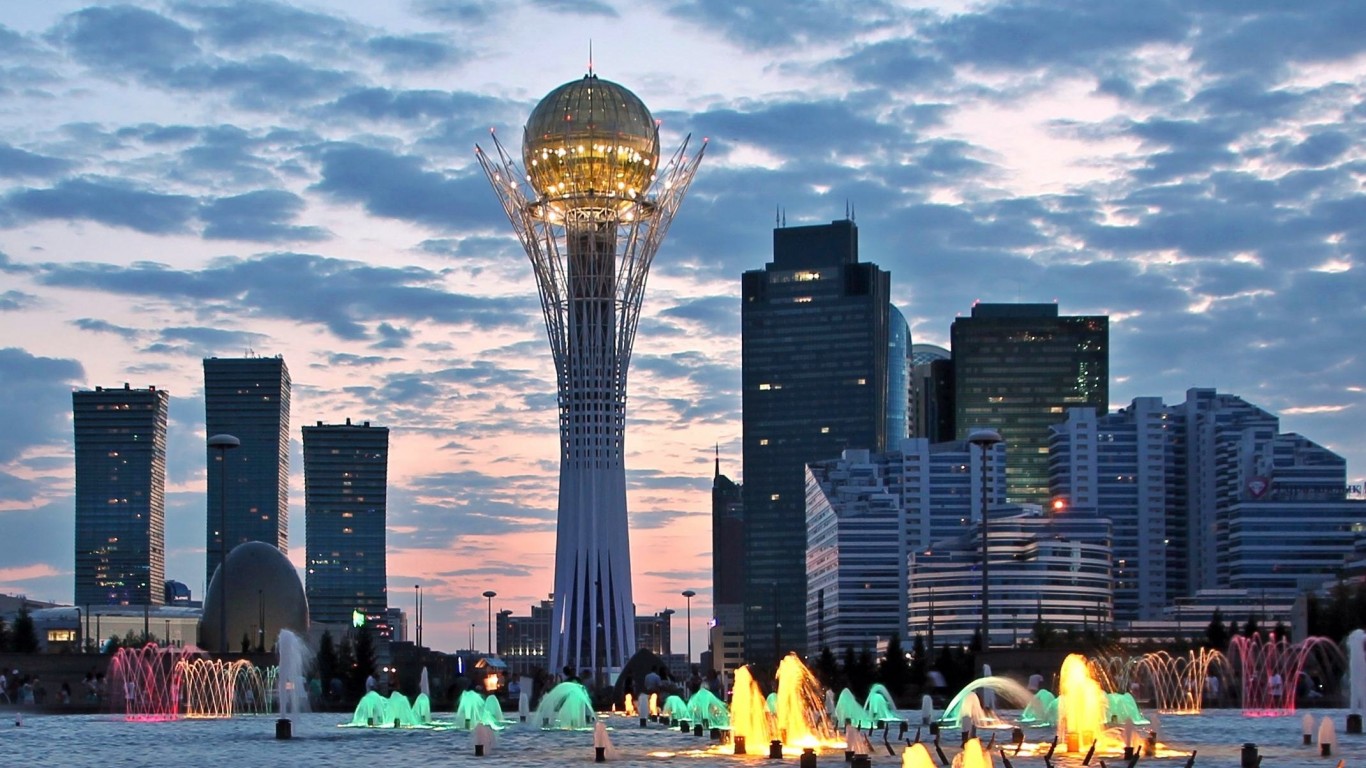
34. Kazakhstan
The Turkic word “kazak,” sometimes rendered as “qazaq” or “quzzāq,” means adventurer or guerilla, but is also translated as horseman. (The term “cossack” has the same root.) “Stan” is a Farsi or ancient Persian word meaning country or land. Kazakhstan might be translated, then, as Land of the Adventurers (or Horsemen).
[in-text-ad-2]

35. Lebanon
This historically war-torn Middle Eastern country is believed to draw its name from an old Semitic word, “lavan,” meaning white — perhaps a reference to the imposing snow-capped peak now called Mount Lebanon.
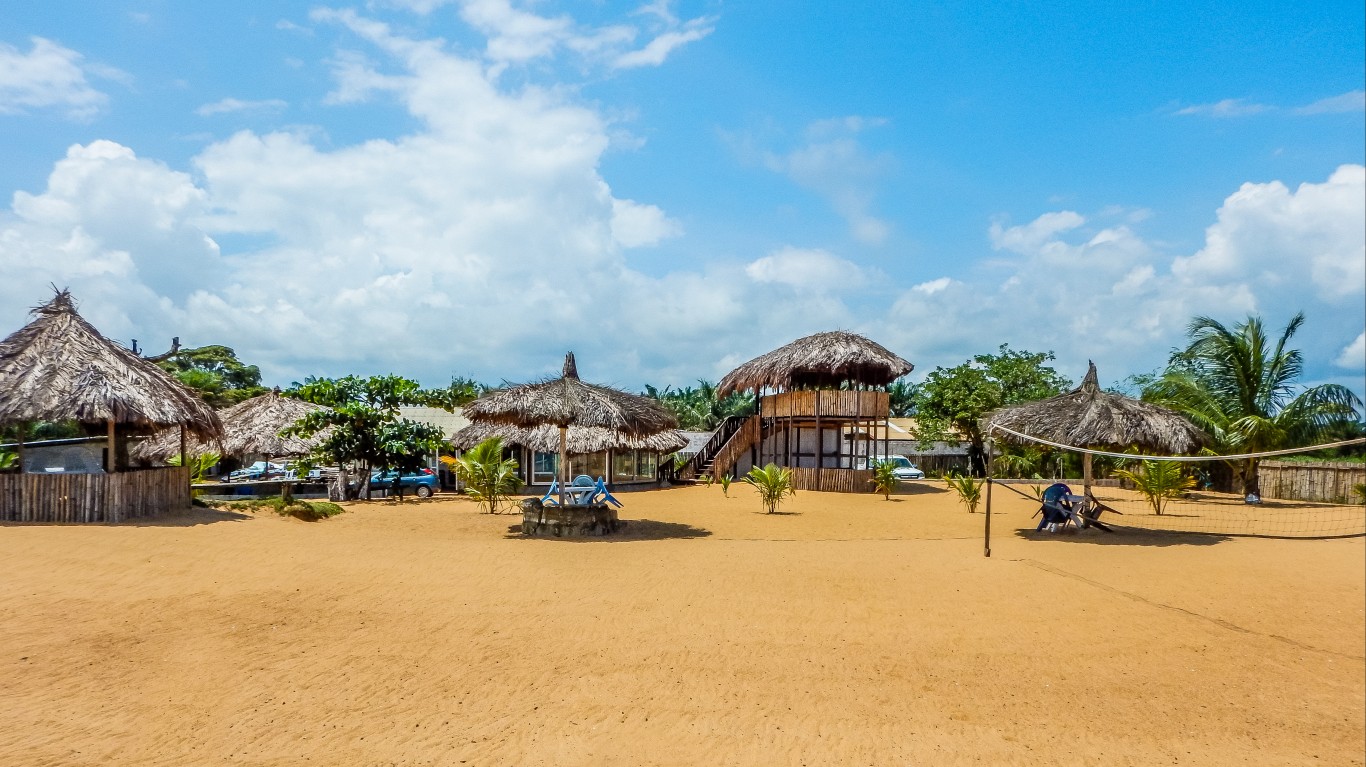
36. Liberia
The first republic on the African continent, Liberia, was founded in 1822 by freed American slaves through the efforts of the American Colonization Society. The new nation’s name was chosen by a member of the society, Maryland senator Robert Goodloe Harper, who based it on the appropriate Latin word “liber,” meaning free.
[in-text-ad]
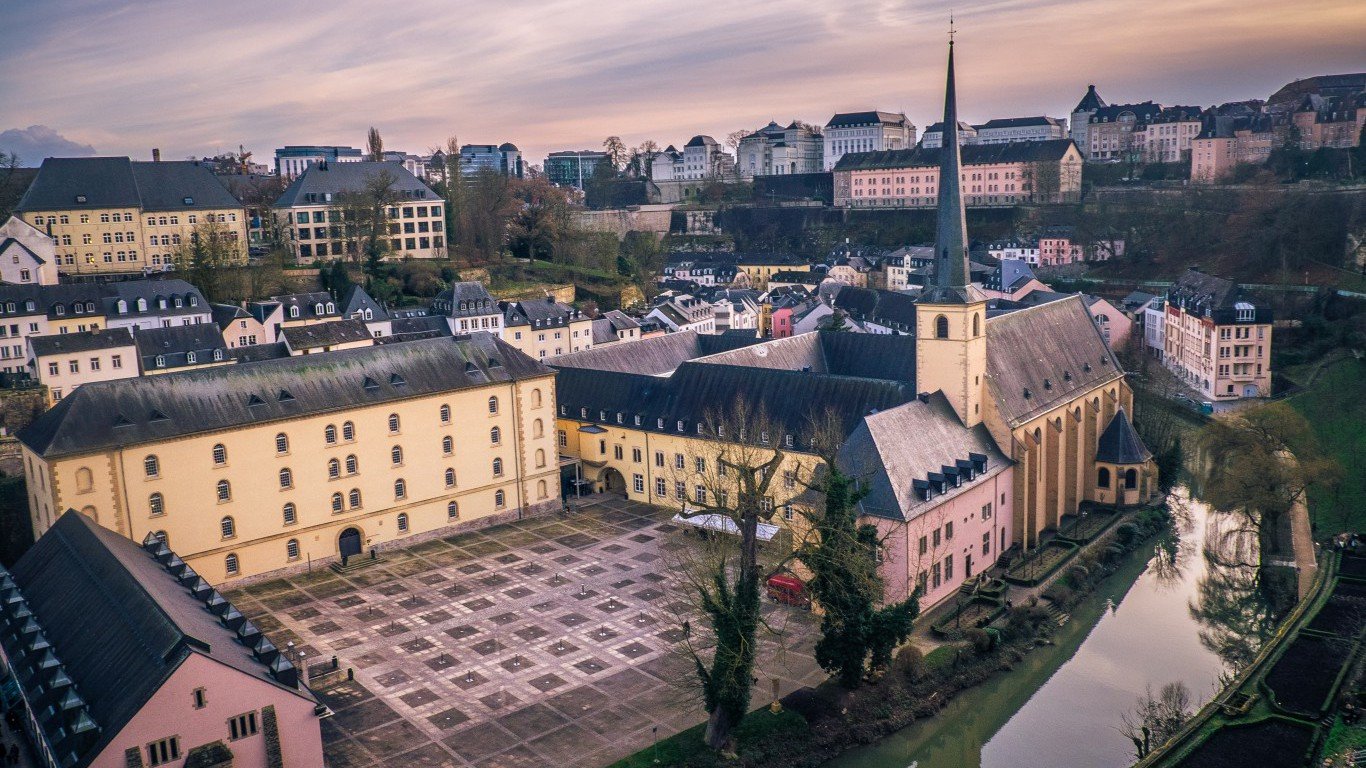
37. Luxembourg
Officially the Grand Duchy of Luxembourg, this small country, which borders Belgium, Germany, and France, takes its name from the Celtic word “lucilem” or the proto-Germanic word “lutilla” (both mean little) and the German word “burg” (for castle or fortress).
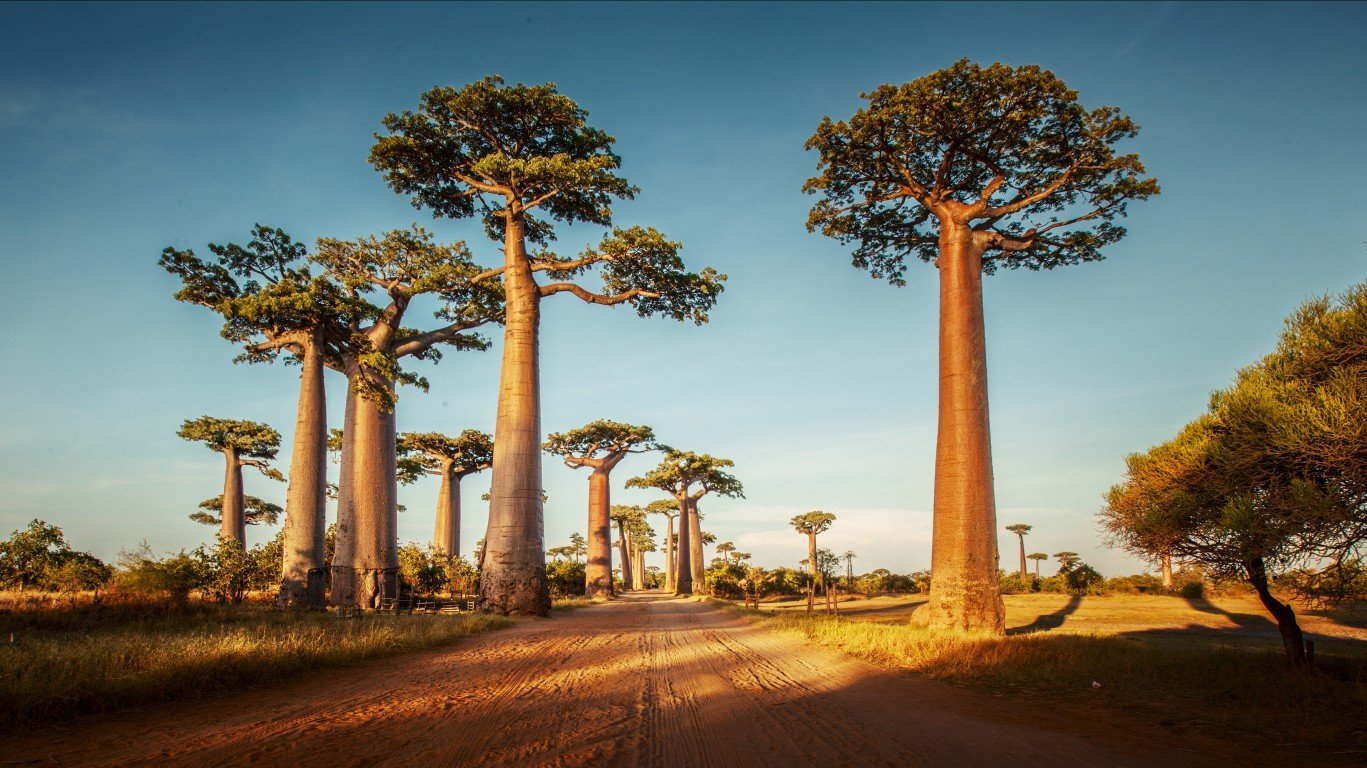
38. Madagascar
We can attribute the name of this republic off the coast of Mozambique to explorer Marco Polo, who dubbed it “Madageiscar,” his inexact interpretation of Mogadishu — the Somali port city with which he confused the island. Mogadishu, in turn, likely draws its name from the Arabic word “maq’ad,” meaning seat (as in headquarters) and the Persian term “shah,” meaning ruler. Persians started trading in East Africa in the sixth century, and the Persian shah had authority over the Somali port.
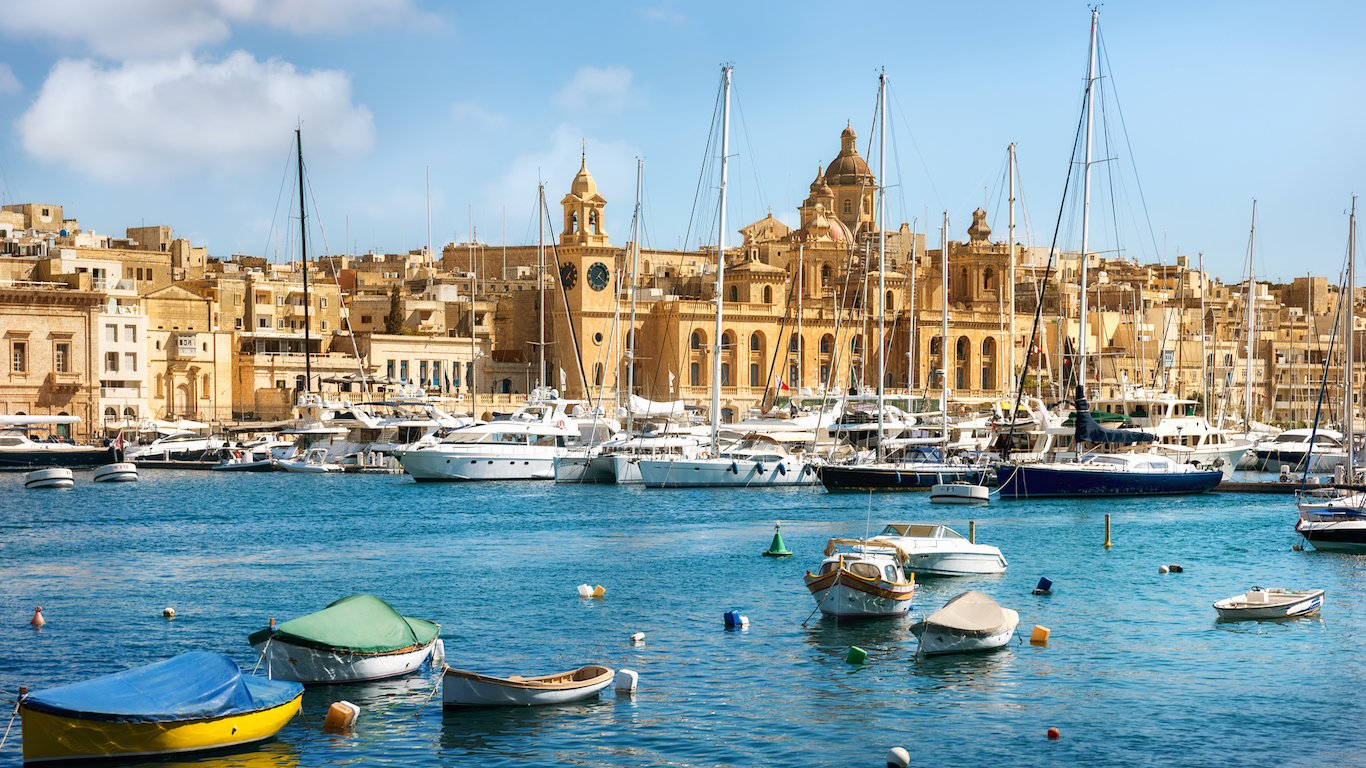
39. Malta
Malta’s name might be related to the Greek word for honey, “méli,” the connection being that this Mediterranean island was famous for that sweetener. It might also derive from the Phoenician word “maleth,” meaning refuge.
[in-text-ad-2]
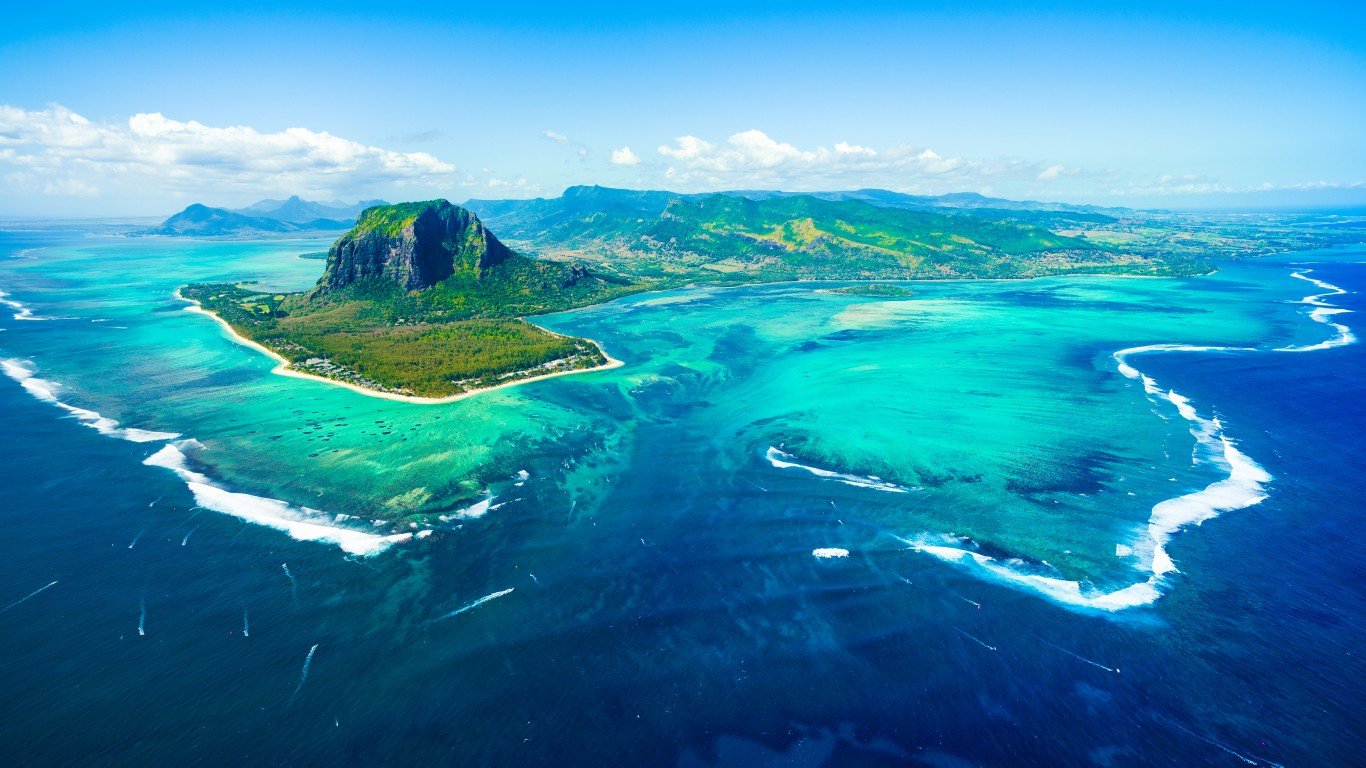
40. Mauritius
When the Dutch claimed possession of this island in the Indian Ocean in 1598, they named it for Maurice, the Prince of Orange and Count of Nassau, who was then the hereditary stadtholder, or executive officer, of the Dutch Republic.
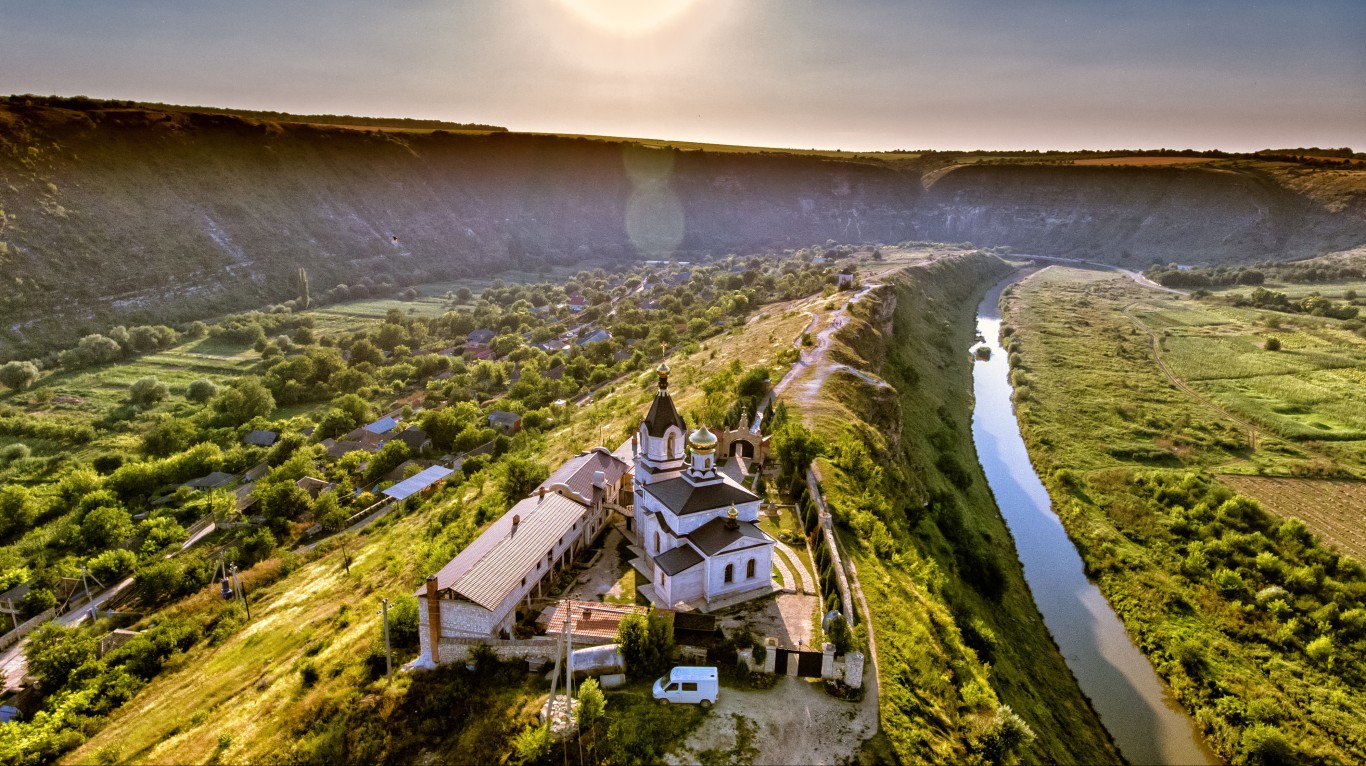
41. Moldova
Moldavia (sic) was a historic principality on the Danube River. Under the name Bessarabia, it was ruled successively by the Ottomans, the Russians, and the Romanians, before becoming the Moldavian Soviet Socialist Republic after World War II. After the dissolution of the Soviet Union in 1991, it took the name Moldova, after the Moldova River. Folk etymology attributes that name to a Transylvanian prince whose favorite hunting dog, Molda, drowned in its waters. More likely, it derives from a Proto-Indo-European root, “melh,” meaning dark, or the Gothic word “mulda,” meaning dust.
[in-text-ad]
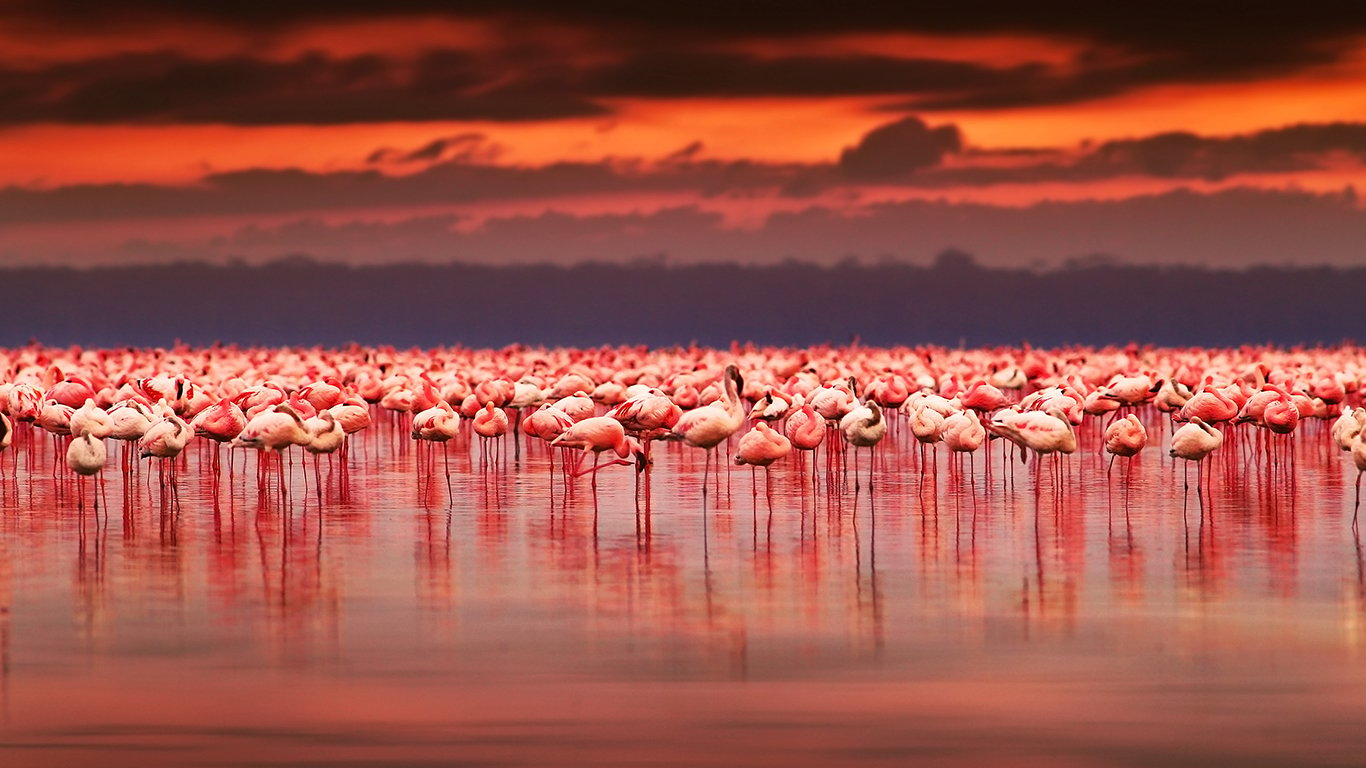
42. Nauru
The origins of the inhabitants of this tiny Micronesian island — considered the world’s smallest independent republic — are somewhat mysterious, as their language doesn’t resemble that of any of their neighbors. The island’s name might come from the Nauruan word “anaoero,” meaning “I go to the beach.”
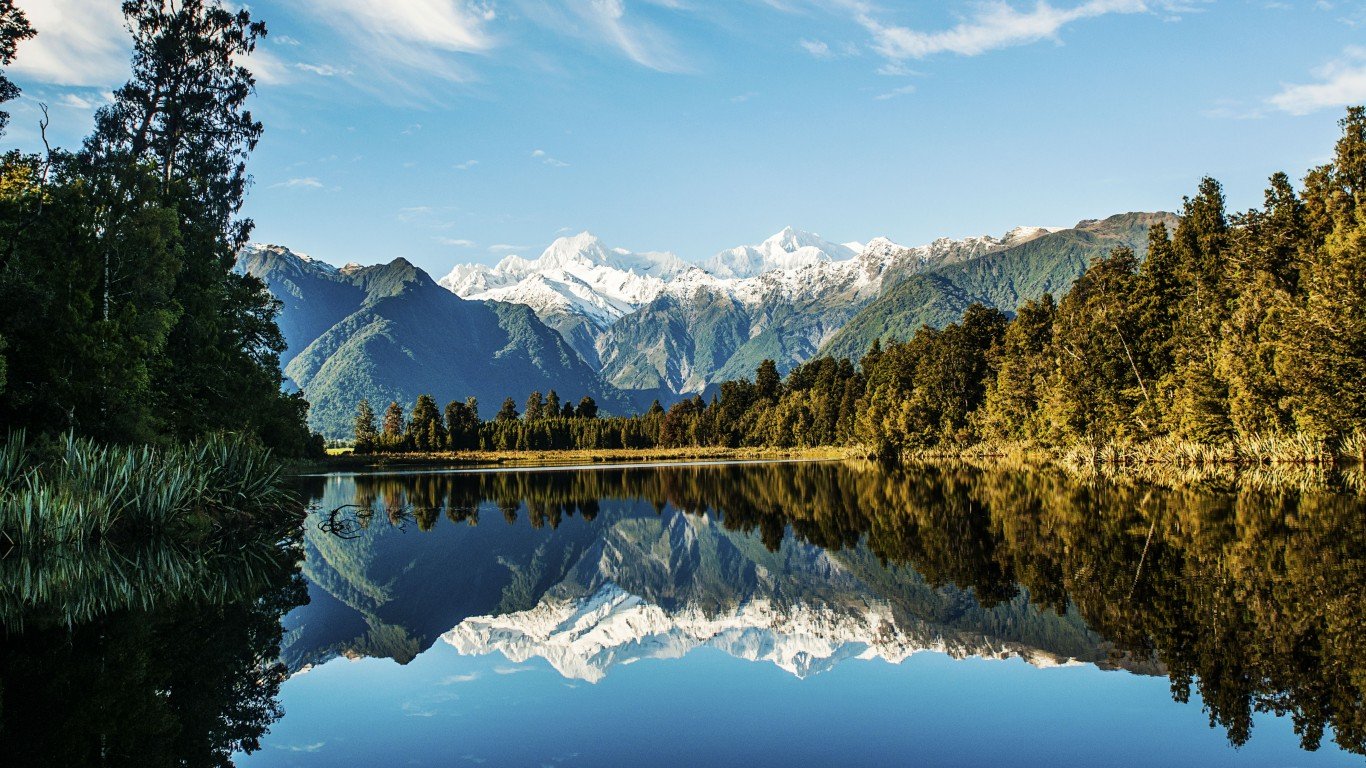
43. New Zealand
This country was christened Staaten Landt, States Lands, in 1647 by the first European to come upon it, the Dutch explorer Abel Tasman (for whom the Australian island state of Tasmania is named). The following year, cartographers for the Dutch East India Company renamed it Nieuw Zeeland after a province in the Netherlands whose name translates as sea land.
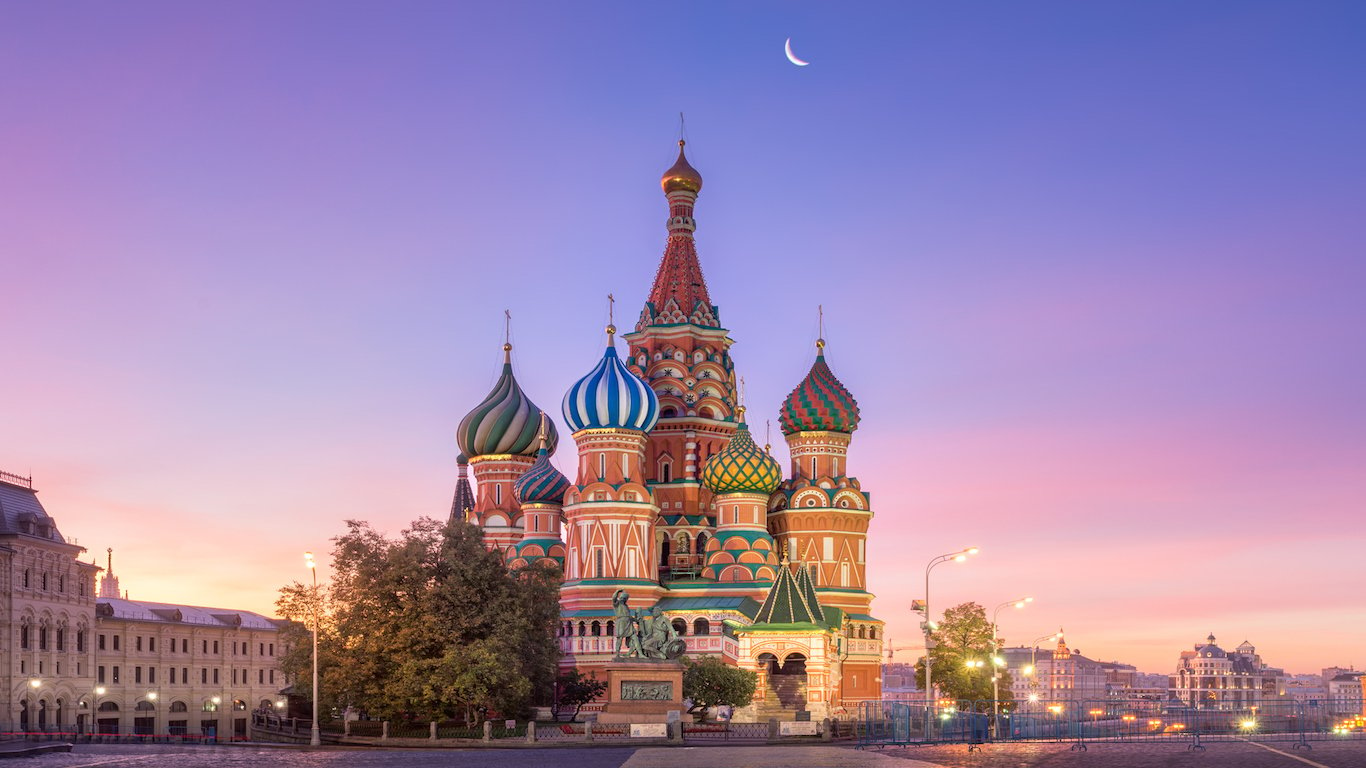
44. Russia
This superpower’s name first appeared in its present form in Latin in the 11th century and in English in the late 14th. It means land of the Rus — the Rus, or Ros, having been an ancient people who may have been Scandinavian in origin (one theory is that the name derives from “Ruotsi,” the Finnish word for Swedish), or were possibly a southeastern Slavic tribe.
[in-text-ad-2]
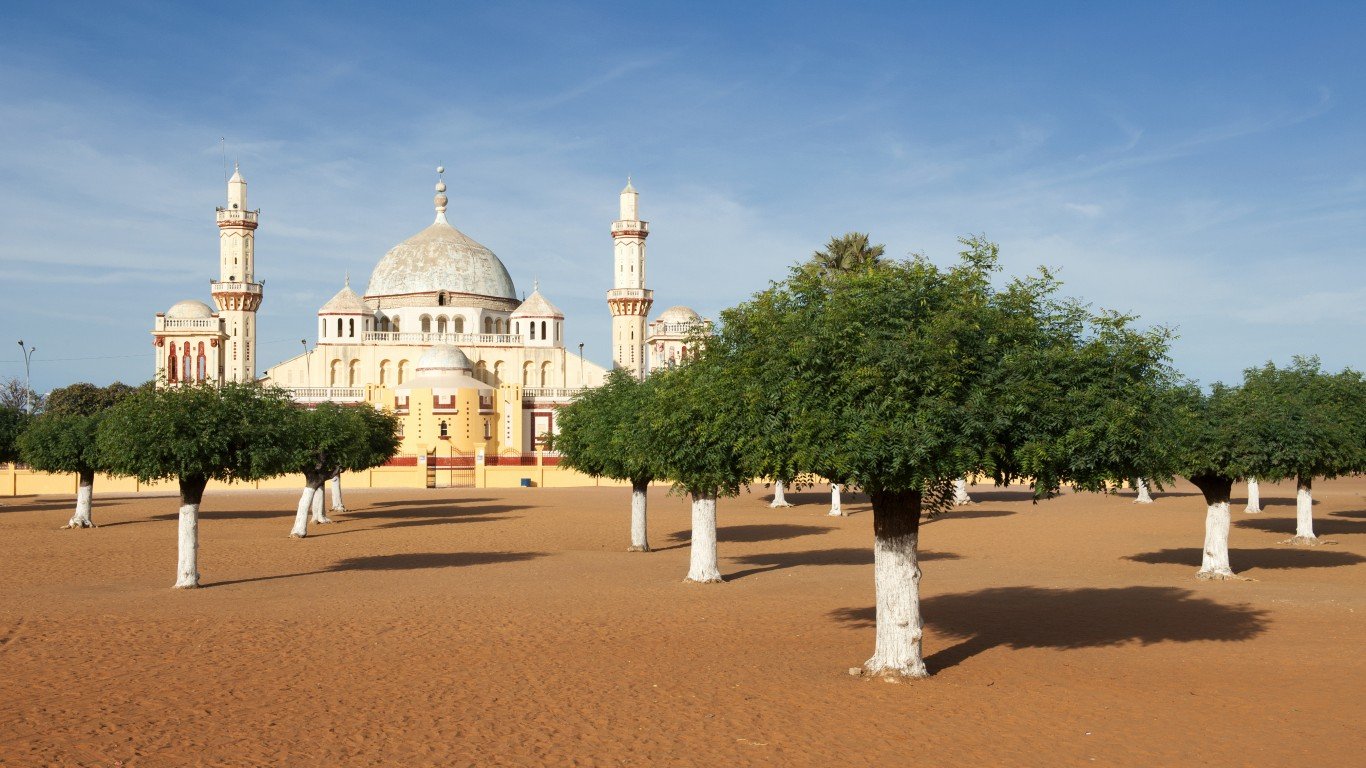
45. Senegal
It is widely accepted that this West African state takes its name from the Senegal River, which forms its northern border with Mauritania. But how did the river get its name? A common explanation, proposed by a French priest in 1850, is that it comes from the Wolof words “sunu gaal,” meaning our canoe. A mid-15th-century Portuguese explorer had already called the river “Senega,” however. The name might refer to the Zenega, a group of Berber tribal confederations north of the river.

46. Singapore
Singapore was founded as a trading colony by the British in 1819 on the site of a 14th-century Malay port, and has been an independent city-state since 1965. It takes its name from the Sanskrit “simhapuram,” meaning Lion City. Although no lions are native to the region, Lion City remains a nickname for Singapore, and a massive water-spouting statue of a “Merlion” (half lion, half fish) on the Singapore River is a national icon.
[in-text-ad]
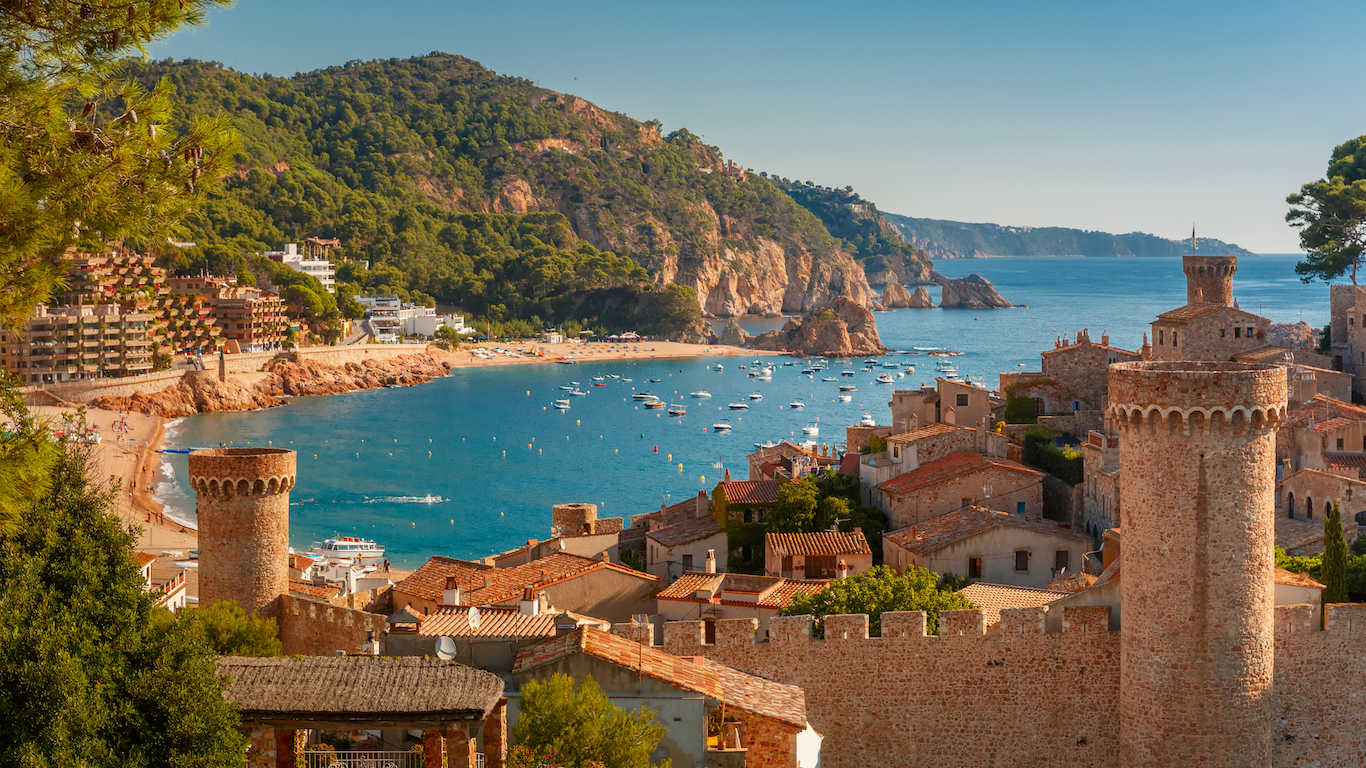
47. Spain
There are several theories as to the origin of this country’s name. The Phoenicians, who began colonizing the Iberian Peninsula around 800 B.C., may have called it “i-spn-ya,” the place where metals are forged (the area was known for its mineral wealth). Alternately, some say the name derives from the Carthaginians, circa 300 B.C., who called it “Ispania,” or “Land of the Rabbits” (the animals were plentiful here). In either case, the Romans later Latinized the name to Hispania, which became the Spanish Espanya, which is anglicized as “Spain.” An older version of the story equates “Spain” with the Basque word “ezpanna,” said to mean edge or border, though in modern Basque the word means “we do not know.”
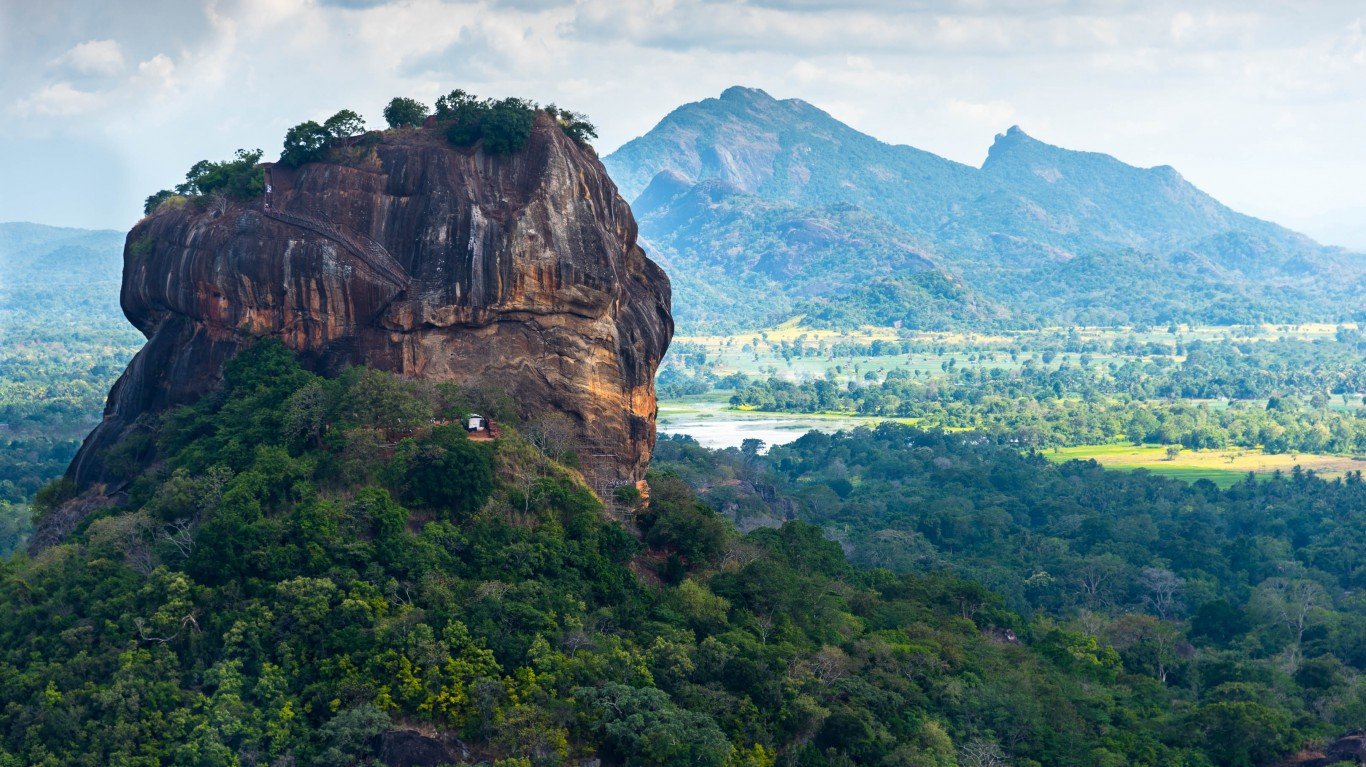
48. Sri Lanka
Known as Ceylon until 1972 when its name was changed, this island nation off the southeastern coast of India may draw its modern name from the Sanskrit words “shrī,” meaning holiness, happiness, or prosperity, and “lak diga,” land mass.
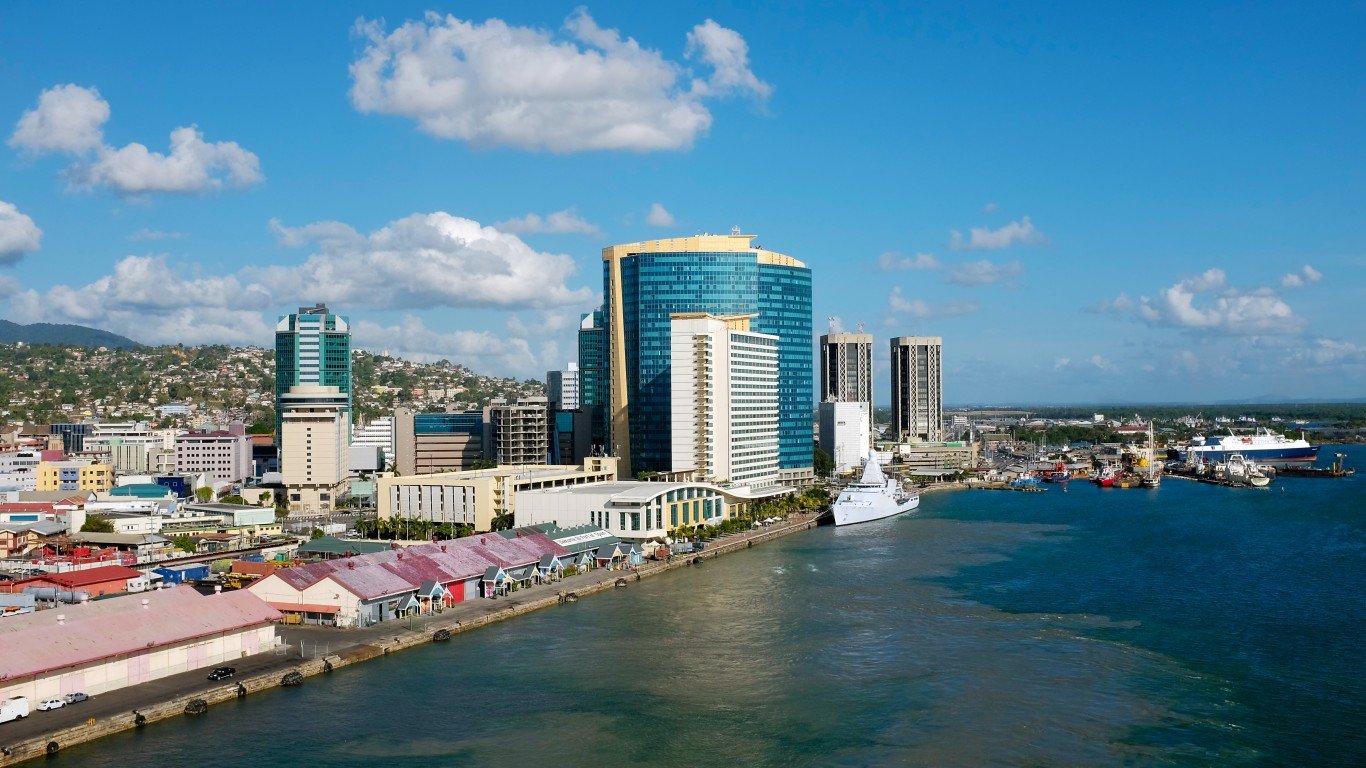
49. Trinidad and Tobago
Christopher Columbus named the larger island of this two-island state La Isla de la Trinidad, the island of the Trinity, in 1498. According to one version of the story, his ship was running low on drinking water and he made a vow to name the first land he saw in honor of the Holy Trinity if he and his crew were spared. Trinidad then came into view, and the fact that the crew could see three mountain peaks rising from it strengthened Columbus’s resolve. The etymology of Tobago is more complicated, but the name seems to be related to tobacco, either because the island’s natives smoked it or because the island itself was thought to have the shape of a cigar or pipe.
[in-text-ad-2]
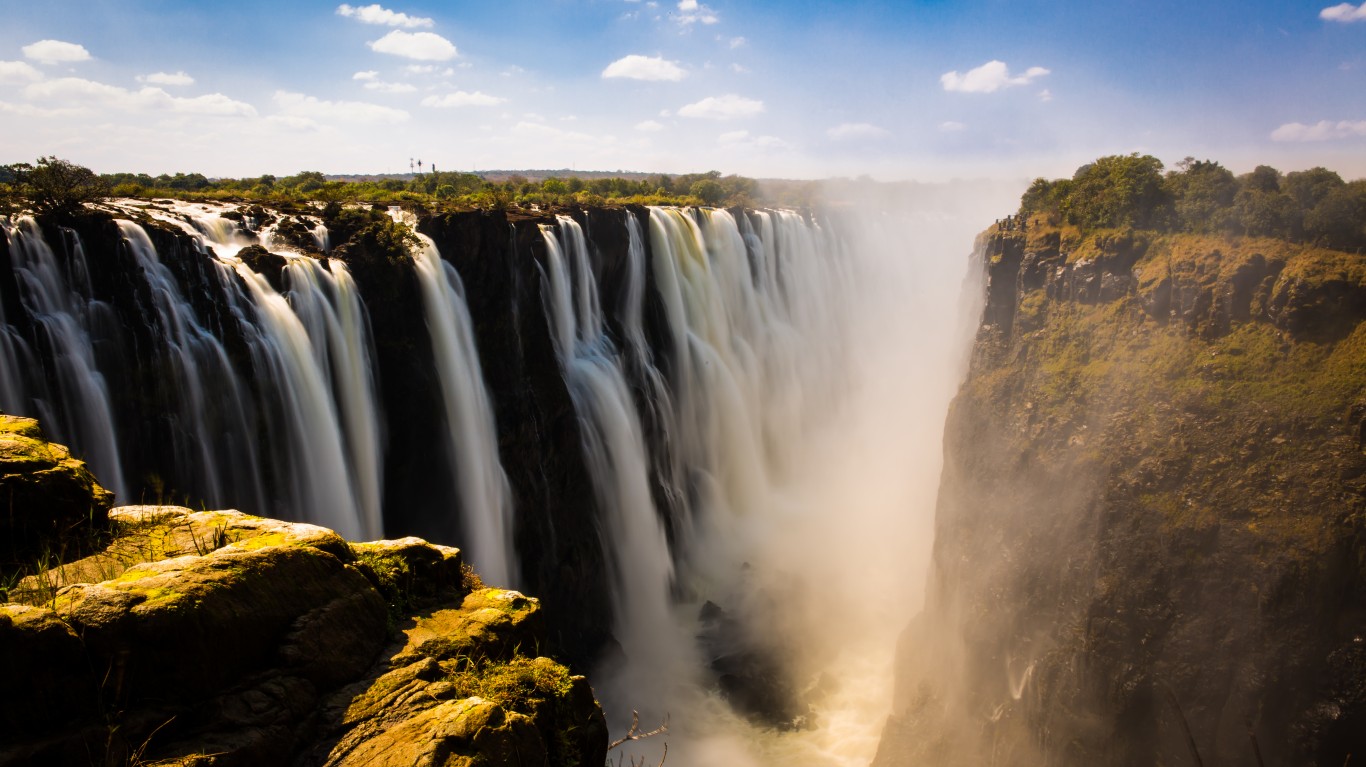
50. Zimbabwe
Called Southern Rhodesia or Rhodesia during its colonial era, this African country was renamed after independence in honor of the historic Great Zimbabwe civilization of the 11th through 15th centuries, home of the legendary Queen of Sheba. The Great Zimbabwe capital complex, in the southeastern part of the modern nation, was the largest stone structure in pre-colonial southern Africa, and its name comes from the Shona phrase “dzimba-dze-mabwe,” meaning houses of stone.
ALERT: Take This Retirement Quiz Now (Sponsored)
Take the quiz below to get matched with a financial advisor today.
Each advisor has been vetted by SmartAsset and is held to a fiduciary standard to act in your best interests.
Here’s how it works:
1. Answer SmartAsset advisor match quiz
2. Review your pre-screened matches at your leisure. Check out the advisors’ profiles.
3. Speak with advisors at no cost to you. Have an introductory call on the phone or introduction in person and choose whom to work with in the future
Take the retirement quiz right here.
Thank you for reading! Have some feedback for us?
Contact the 24/7 Wall St. editorial team.
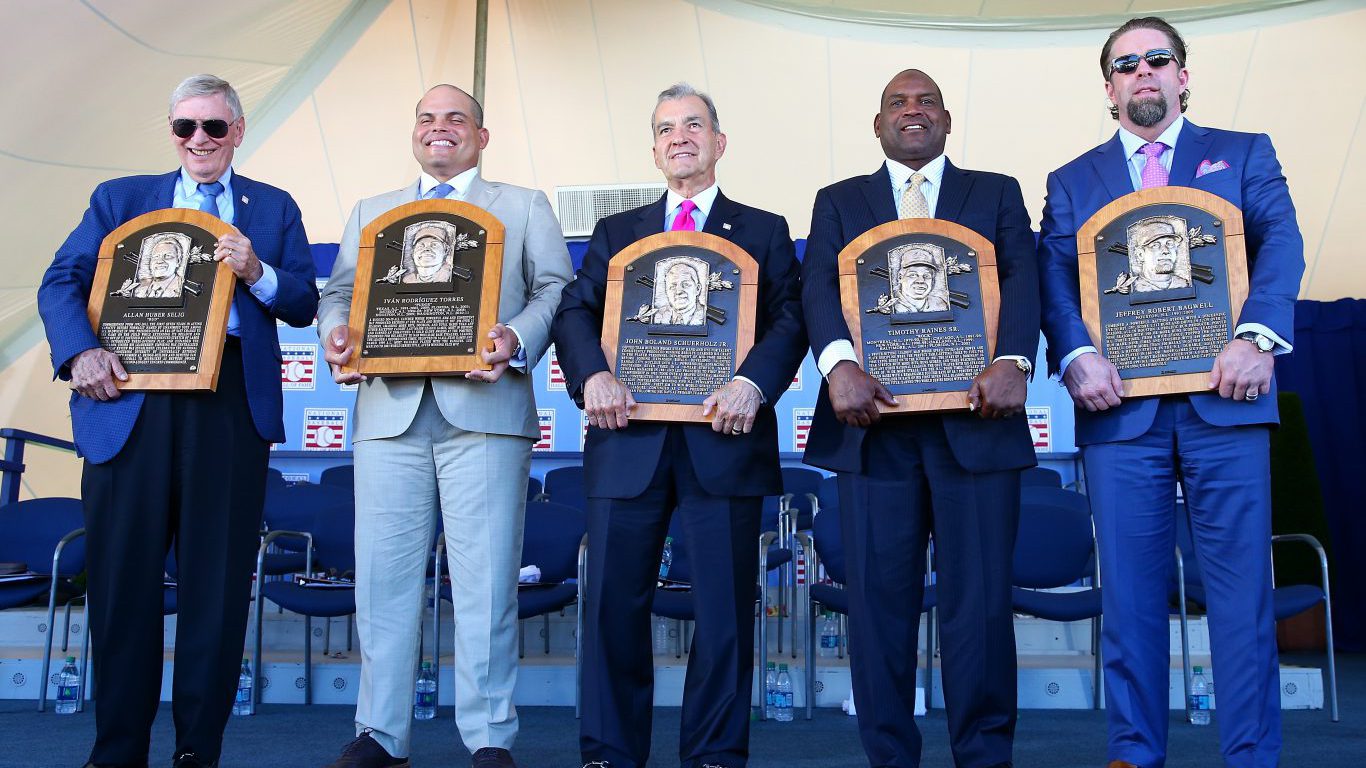 24/7 Wall St.
24/7 Wall St. 24/7 Wall St.
24/7 Wall St. 24/7 Wall St.
24/7 Wall St.
